All about Iran (Islamic Republic of)
109 element(s) found
Document(s)
A village of graves: Widespread and systematic drug executions in Iran
By Iran Human Rights, on 15 January 2026
2026
NGO report
Warning: Undefined variable $liste_type_doc in /home/worldcoa/coalition2020/wp-content/themes/WCADP/template-parts/contents-document.php on line 21
Warning: Undefined variable $liste_themes in /home/worldcoa/coalition2020/wp-content/themes/WCADP/template-parts/contents-document.php on line 35
Drug Offenses
Warning: Undefined variable $liste_pays in /home/worldcoa/coalition2020/wp-content/themes/WCADP/template-parts/contents-document.php on line 40
Iran (Islamic Republic of)
Warning: Undefined variable $tag_langue in /home/worldcoa/coalition2020/wp-content/themes/WCADP/template-parts/contents-document.php on line 85
More details See the document
- Document type NGO report
- Countries list Iran (Islamic Republic of)
- Themes list Drug Offenses
Warning: Undefined variable $lien_langue in /home/worldcoa/coalition2020/wp-content/themes/WCADP/template-parts/contents-document.php on line 127

Article(s)
For a world free from the shadows of the gallows
By World Coalition Against the Death Penalty, on 14 April 2025
On 8 April 2025, Amnesty International published its annual report on the state of the death penalty worldwide. Amnesty International’s monitoring shows that with continued advocacy, it is just a matter of time before the death penalty will be fully abolished globally.
2025
China
Clemency
Cruel, Inhuman and Degrading Treatment and Punishment
Democratic People's Republic of Korea
Gender
Warning: Undefined variable $tmp in /home/worldcoa/coalition2020/wp-content/themes/WCADP/template-parts/contents.php on line 27
Innocence
Intellectual Disability
Iran (Islamic Republic of)
Iraq
Japan
Malaysia
Mental Illness
Moratorium
Saudi Arabia
Terrorism
Trend Towards Abolition
United States
Viet Nam
Women
Zambia
Zimbabwe

Article(s)
48th UPR Session Highlights Growing Calls for Death Penalty Reform
By Sandra Deballe, on 31 March 2025
The 48th session of the United Nations’ Universal Periodic Review (UPR) took place from the 20th to the 31st of January 2025 in Geneva, Switzerland. It showcased the increasing international focus on the death penalty, with a significant number of recommendations for The Gambia, Fiji, Iran, Iraq, and Egypt.
2025
Egypt
Fiji
Gambia
Warning: Undefined variable $tmp in /home/worldcoa/coalition2020/wp-content/themes/WCADP/template-parts/contents.php on line 27
Iran (Islamic Republic of)
Iraq
Juveniles
Moratorium
Public Opinion
Trend Towards Abolition
Document(s)
The Death Penalty for Drug Offences: Global Overview 2024
on 12 March 2025
2025
NGO report
Warning: Undefined variable $liste_type_doc in /home/worldcoa/coalition2020/wp-content/themes/WCADP/template-parts/contents-document.php on line 21
Warning: Undefined variable $liste_pays in /home/worldcoa/coalition2020/wp-content/themes/WCADP/template-parts/contents-document.php on line 40
China
Warning: Undefined variable $liste_themes in /home/worldcoa/coalition2020/wp-content/themes/WCADP/template-parts/contents-document.php on line 35
Cruel, Inhuman and Degrading Treatment and Punishment
Democratic People's Republic of Korea
Drug Offenses
Fair Trial
Gender
Indonesia
Iran (Islamic Republic of)
Iraq
Legal Representation
Malaysia
Moratorium
Pakistan
Saudi Arabia
Singapore
Trend Towards Abolition
Viet Nam
Women
Warning: Undefined variable $tag_langue in /home/worldcoa/coalition2020/wp-content/themes/WCADP/template-parts/contents-document.php on line 85
More details See the document
The Death Penalty for Drug Offences: Global Overview 2024 report provides updates on legislative, policy and practical developments related to the use of capital punishment for drug offences, a practice which is a clear violation of international human rights and drug control standards. This report presents an analysis of key developments, with a focus on analysing and disseminating available figures and trends on drug-related executions and death sentences.
- Document type NGO report
- Countries list China / Democratic People's Republic of Korea / Indonesia / Iran (Islamic Republic of) / Iraq / Malaysia / Pakistan / Saudi Arabia / Singapore / Viet Nam
- Themes list Cruel, Inhuman and Degrading Treatment and Punishment / Drug Offenses / Fair Trial / Gender / Legal Representation / Moratorium / Trend Towards Abolition / Women
Warning: Undefined variable $lien_langue in /home/worldcoa/coalition2020/wp-content/themes/WCADP/template-parts/contents-document.php on line 127
Document(s)
Annual Report on the Death Penalty in Iran 2024
on 20 February 2025
2025
NGO report
Warning: Undefined variable $liste_type_doc in /home/worldcoa/coalition2020/wp-content/themes/WCADP/template-parts/contents-document.php on line 21
Warning: Undefined variable $liste_themes in /home/worldcoa/coalition2020/wp-content/themes/WCADP/template-parts/contents-document.php on line 35
Clemency
Cruel, Inhuman and Degrading Treatment and Punishment
Drug Offenses
Fair Trial
Gender
Intellectual Disability
Warning: Undefined variable $liste_pays in /home/worldcoa/coalition2020/wp-content/themes/WCADP/template-parts/contents-document.php on line 40
Iran (Islamic Republic of)
Juveniles
Legal Representation
Mental Illness
Murder Victims' Families
Women
Warning: Undefined variable $tag_langue in /home/worldcoa/coalition2020/wp-content/themes/WCADP/template-parts/contents-document.php on line 54
Warning: Undefined variable $lien_langue in /home/worldcoa/coalition2020/wp-content/themes/WCADP/template-parts/contents-document.php on line 55
fafr
More details See the document
The Report provides an in-depth analysis of death penalty trends in Iran 2024. It covers execution statistics, legislative frameworks, and the abolitionist movement, offering insights on how the international community can help reduce executions.
- Document type NGO report
- Countries list Iran (Islamic Republic of)
- Themes list Clemency / Cruel, Inhuman and Degrading Treatment and Punishment / Drug Offenses / Fair Trial / Gender / Intellectual Disability / Juveniles / Legal Representation / Mental Illness / Murder Victims' Families / Women
- Available languages گزارش سالانه اعدام در ایران؛ ۲۰۲۴Rapport annuel sur la peine de mort en Iran
Document(s)
Women and the Death Penalty in Iran: A Gendered Perspective
By Iran Human Rights (IHRNGO), on 6 January 2025
2025
NGO report
Warning: Undefined variable $liste_type_doc in /home/worldcoa/coalition2020/wp-content/themes/WCADP/template-parts/contents-document.php on line 21
Warning: Undefined variable $liste_themes in /home/worldcoa/coalition2020/wp-content/themes/WCADP/template-parts/contents-document.php on line 35
Death Row Conditions
Gender
Warning: Undefined variable $liste_pays in /home/worldcoa/coalition2020/wp-content/themes/WCADP/template-parts/contents-document.php on line 40
Iran (Islamic Republic of)
Women
Warning: Undefined variable $tag_langue in /home/worldcoa/coalition2020/wp-content/themes/WCADP/template-parts/contents-document.php on line 85
More details See the document
This comprehensive report by Iran Human Rights (IHRNGO) explores the gendered dimensions of the death penalty in Iran, highlighting systemic inequalities, discriminatory laws, and societal factors that disproportionately affect women on death row. Between 2010 and 2024, at least 241 women were executed, with only 26% of cases officially reported. Many were sentenced under circumstances marked by domestic violence, coerced confessions, or lack of legal representation. The report underscores the urgent need for international advocacy to address these injustices and promote gender equality in Iran’s judicial system.
- Document type NGO report
- Countries list Iran (Islamic Republic of)
- Themes list Death Row Conditions / Gender / Women
Warning: Undefined variable $lien_langue in /home/worldcoa/coalition2020/wp-content/themes/WCADP/template-parts/contents-document.php on line 127
Document(s)
Qarchak Prison Report: Hell for Women and Children in Iran
By Iran Human Rights, on 10 December 2024
2024
NGO report
Warning: Undefined variable $liste_type_doc in /home/worldcoa/coalition2020/wp-content/themes/WCADP/template-parts/contents-document.php on line 21
Warning: Undefined variable $liste_themes in /home/worldcoa/coalition2020/wp-content/themes/WCADP/template-parts/contents-document.php on line 35
Cruel, Inhuman and Degrading Treatment and Punishment
Death Row Conditions
Warning: Undefined variable $liste_pays in /home/worldcoa/coalition2020/wp-content/themes/WCADP/template-parts/contents-document.php on line 40
Iran (Islamic Republic of)
Women
Warning: Undefined variable $tag_langue in /home/worldcoa/coalition2020/wp-content/themes/WCADP/template-parts/contents-document.php on line 85
More details See the document
Iran Human Rights (IHRNGO) has released a detailed report exposing the inhumane conditions at Qarchak Prison in Iran, a facility originally designed as a poultry farm. The prison detains over 2,000 women and children in overcrowded and unsanitary conditions, with a lack of healthcare, contaminated drinking water, and inadequate nutrition. Children, some born in the prison, are exposed to severe hardships, including unhygienic environments, insufficient food, and inadequate medical care, and are often separated from their mothers at the age of two.
The report also highlights the use of solitary confinement for women, including death row prisoners awaiting execution. These cells lack ventilation and basic facilities, exacerbating the psychological and physical suffering of detainees. Mothers detained with their children face additional challenges, including threats of separation and the absence of educational or recreational resources for their children.
IHRNGO calls for the immediate closure of Qarchak Prison and urges the international community to take action against these egregious human rights violations. This report underscores the urgent need to protect the dignity and rights of all prisoners, particularly the most vulnerable women and children.
- Document type NGO report
- Countries list Iran (Islamic Republic of)
- Themes list Cruel, Inhuman and Degrading Treatment and Punishment / Death Row Conditions / Women
Warning: Undefined variable $lien_langue in /home/worldcoa/coalition2020/wp-content/themes/WCADP/template-parts/contents-document.php on line 127

Article(s)
In support and solidarity with “No Death Penalty Tuesdays” abolitionist movement in Iran
By World Coalition Against the Death Penalty, on 28 August 2024
Every six hours, one person was executed in Iranian prisons in the first 20 days of August. Execution numbers have been rising every year since 2021, with at least 834 people executed in 2023, and 395 executions recorded by Iran Human Rights as of 26th August 2024.
2024
Warning: Undefined variable $tmp in /home/worldcoa/coalition2020/wp-content/themes/WCADP/template-parts/contents.php on line 27
Iran (Islamic Republic of)
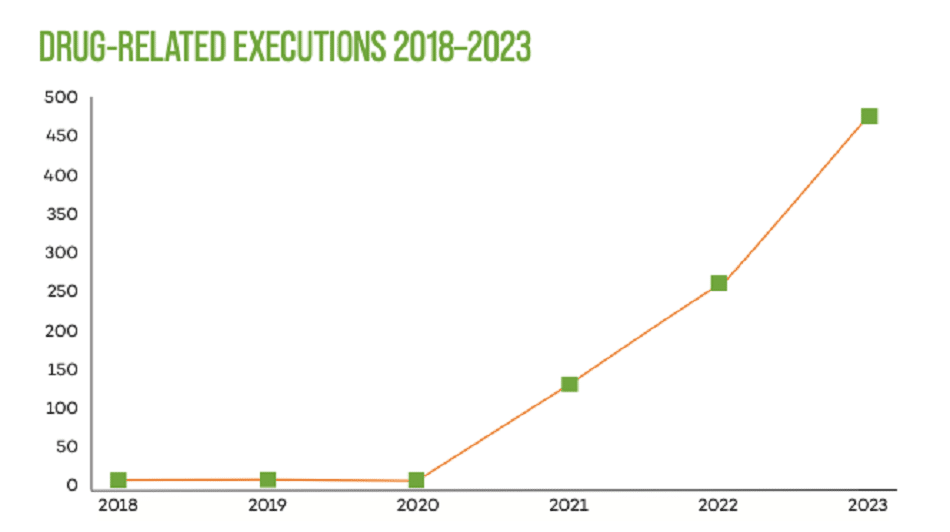
Article(s)
“Frightening” increase of executions in Iran
By World coalition against the death penalty, on 20 June 2024
Iran Human Rights (IHRNGO) reports that at least 243 people, including 10 women, have been executed in 2024, as of 15 June. In 2023, the number of people executed has increased from 582 to 834. At least 471 people were executed for drug-related offenses. This represent a 84% increase compared to 2022 (256).
2024
Drug Offenses
Iran (Islamic Republic of)
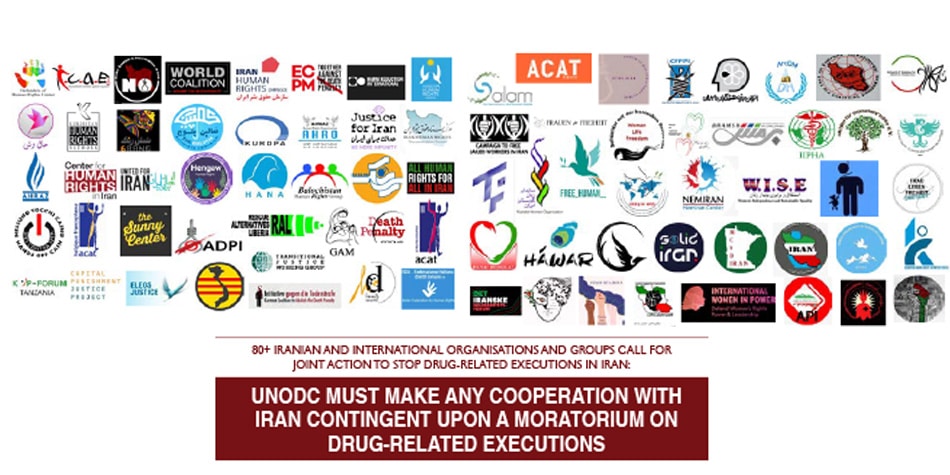
Article(s)
Call for joint action to stop drug-related executions in Iran
on 3 May 2024
April 10, 2024 Iran Human Rights (IHRNGO) and 83 Iranian and international organisations and groups have called for joint action to stop drug-related executions, urging UNODC to make “any cooperation with the Islamic Republic contingent on a complete halt on drug-related executions”. They have announced the start of a mass international campaign in this regard.
2024
Drug Offenses
Warning: Undefined variable $tmp in /home/worldcoa/coalition2020/wp-content/themes/WCADP/template-parts/contents.php on line 27
Iran (Islamic Republic of)
Document(s)
“Don’t let them kill us”: Iran’s relentless execution crisis since the 2022 uprising
By Amnesty International, on 4 April 2024
2024
NGO report
Warning: Undefined variable $liste_type_doc in /home/worldcoa/coalition2020/wp-content/themes/WCADP/template-parts/contents-document.php on line 21
Warning: Undefined variable $liste_pays in /home/worldcoa/coalition2020/wp-content/themes/WCADP/template-parts/contents-document.php on line 40
Iran (Islamic Republic of)
Warning: Undefined variable $tag_langue in /home/worldcoa/coalition2020/wp-content/themes/WCADP/template-parts/contents-document.php on line 54
Warning: Undefined variable $lien_langue in /home/worldcoa/coalition2020/wp-content/themes/WCADP/template-parts/contents-document.php on line 55
fa
More details See the document
Published in 2024.
This research briefing documents the horrifying surge in executions in Iran in 2023, the highest in eight years. More than half of the executions were for drug-related offences amid a distressing return to a lethal antinarcotics policy since Ebrahim Raisi’s rise to presidency in 2021. With systemic impunity in Iran, the briefing reiterates the need for states to initiate criminal investigations under the principle of universal jurisdiction into crimes under international law committed by Iranian officials, irrespective of the absence or presence of the accused in their territory. Since the “Woman Life Freedom” uprising of September-December 2022, the Iranian authorities have weaponized the death penalty to create a pervasive climate of fear across the country, exert control over the population, and suppress dissent and any challenge to their iron grip on power. As a result, 2023 saw an exponential increase in the number of recorded executions. The authorities executed at least 853 people in 2023, a 48% increase from 2022 when 576 people were executed and a 172% increase from 2021 when 314 people were executed. Amnesty International believes that the real number of executions is higher, but the Iranian authorities are not transparent about the number of people executed each year and do not make data on executions publicly available.
- Document type NGO report
- Countries list Iran (Islamic Republic of)
Warning: Undefined variable $liste_themes in /home/worldcoa/coalition2020/wp-content/themes/WCADP/template-parts/contents-document.php on line 114
- Available languages « ن گ راذ ی د ام ار دنشکب » نارحب مادعا یب یاه ناما رد اریا شزیخ نامز زا ن لاس 1
Document(s)
Annual Report On the Death Penalty in Iran 2023
By Iran Human Rights (IHRNGO) with the support of ECPM (Together Against the Death Penalty), on 14 March 2024
2024
NGO report
Warning: Undefined variable $liste_type_doc in /home/worldcoa/coalition2020/wp-content/themes/WCADP/template-parts/contents-document.php on line 21
Warning: Undefined variable $liste_pays in /home/worldcoa/coalition2020/wp-content/themes/WCADP/template-parts/contents-document.php on line 40
Iran (Islamic Republic of)
Warning: Undefined variable $tag_langue in /home/worldcoa/coalition2020/wp-content/themes/WCADP/template-parts/contents-document.php on line 85
More details See the document
Published on March 5, 2024
This report has been drafted by Iran Human Rights (IHRNGO) with the support of ECPM (Together Against the Death Penalty). Since 2012, Iran Human Rights and ECPM have been working together for the publication, international release and distribution of annual reports on the death penalty in Iran.
The 16th annual report on the death penalty by Iran Human Rights and ECPM (Together Against the Death Penalty) provides an assessment and analysis of the 2023 death penalty trends in 2023 in the Islamic Republic of Iran. It sets out the number of executions in 2023, the trend compared to previous years, the legislative framework and procedures, charges, geographic distribution and a monthly breakdown of executions. Lists of the female and juvenile offenders executed in 2023 are also included in the tables. The report also looks into the abolitionist movement within Iran, including the forgiveness movement and its contribution to reducing the use of the death penalty, and provides analysis on how the international community can contribute to limiting the scope of the death penalty in Iran. The 2023 report is the result of hard work from Iran Human Rights members and supporters who took part in reporting, documenting, collecting, analysing and writing of its contents. We are especially grateful to Iran Human Rights sources inside Iran who incur a significant risk by reporting on unannounced and secret executions in prisons of 30 different provinces. Due to the very difficult context, the lack of transparency and the obvious risks and limitations that human rights defenders face in the Islamic Republic of Iran, this report does not give a complete picture of the use of the death penalty in Iran by any means. There are 46 reported executions which are not included in this report due to a lack of sufficient details or an inability to confirm cases through two different sources. However, it aims to provide the most complete and realistic figures possible in the present circumstances. The current report does not include suspicious deaths in custody, death row prisoners who died in prison before the executions or those killed under torture. ECPM supports the elaboration, editing process, publishing and distribution of this report in the framework of its international advocacy work against the death penalty. The problems of transparency on the data and information about the death penalty in Iran should be overcome by a strong strategy of distribution and dissemination. The overall objectives of this report for Iran Human Rights and ECPM are to call attention to and publicise the facts, in order to change national and international views on the situation of the death penalty in Iran, first executioner country in the world.
- Document type NGO report
- Countries list Iran (Islamic Republic of)
Warning: Undefined variable $liste_themes in /home/worldcoa/coalition2020/wp-content/themes/WCADP/template-parts/contents-document.php on line 114
Warning: Undefined variable $lien_langue in /home/worldcoa/coalition2020/wp-content/themes/WCADP/template-parts/contents-document.php on line 127
Document(s)
The politics of capital punishment for foreign nationals in Iran
By Death Penalty Research Unit (DPRU), University of Oxford, on 5 February 2024
2024
Academic Article
Warning: Undefined variable $liste_type_doc in /home/worldcoa/coalition2020/wp-content/themes/WCADP/template-parts/contents-document.php on line 21
Warning: Undefined variable $liste_pays in /home/worldcoa/coalition2020/wp-content/themes/WCADP/template-parts/contents-document.php on line 40
Iran (Islamic Republic of)
Warning: Undefined variable $tag_langue in /home/worldcoa/coalition2020/wp-content/themes/WCADP/template-parts/contents-document.php on line 85
More details See the document
Published in December 2023.
This paper seeks to map the political economy of capital punishment in Iran, in particular in relation to dual and foreign nationals, and examines its external and internal functions. The external functions include suppressing the ‘cultural threat’ of cross-border drug trafficking, achieving more power in sanctions negotiations, seeking reciprocal prisoner swaps or demanding recompense for outstanding multinational debt. The internal functions include quashing protests against the regime, supressing separatist movements, or even just ‘otherness’. It is evident that those facing disadvantage across foreign national and intersectional lines face the death penalty disproportionately. In addition, although only representing a fraction of the overall population of death row, the arbitrary detention of dual nationals has a disproportionate political function.
- Document type Academic Article
- Countries list Iran (Islamic Republic of)
Warning: Undefined variable $liste_themes in /home/worldcoa/coalition2020/wp-content/themes/WCADP/template-parts/contents-document.php on line 114
Warning: Undefined variable $lien_langue in /home/worldcoa/coalition2020/wp-content/themes/WCADP/template-parts/contents-document.php on line 127
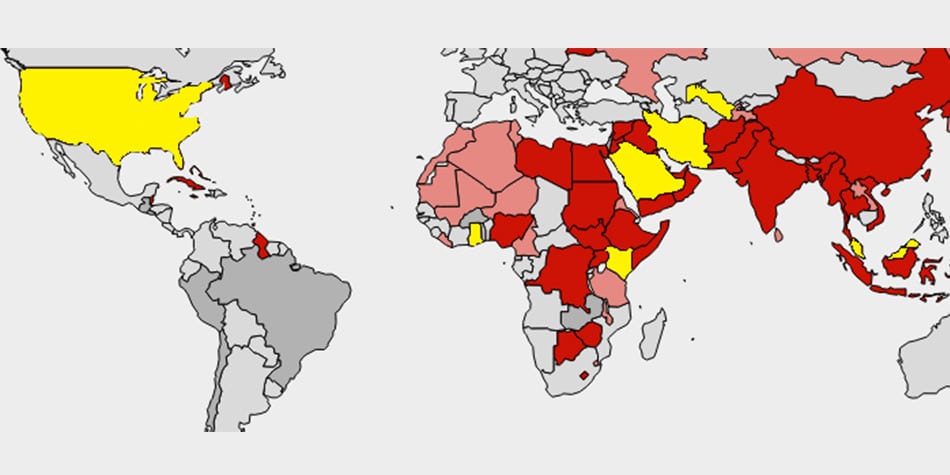
Article(s)
Mid-terms : Un premier semestre 2023 marqué par de multiples abolitions
By Nellia Halimi, on 9 October 2023
Les sept premiers mois de 2023 ont été riches pour la communauté abolitionniste avec un nouveau pays abolitionniste, un nouvel État abolitionniste aux États-Unis, ainsi que des progrès pour l’abolition dans de nombreux pays. Toutefois, certains pays continuent d’appliquer la peine de mort et le nombre d’exécutions a augmenté de manière alarmante.
2023
Ghana
Warning: Undefined variable $tmp in /home/worldcoa/coalition2020/wp-content/themes/WCADP/template-parts/contents.php on line 27
Iran (Islamic Republic of)
Kenya
Malaysia
Saudi Arabia
Singapore
United States
Uzbekistan

Article(s)
Mid-terms: A first half of 2023 marked by multiple abolitions
By Nellia Halimi, on 9 October 2023
The first seven months of 2023 have been rich for the abolitionist community with a new abolitionist country, a new abolitionist state in the United States, as well as progress for abolition within multiple countries. However, some countries continue to use the death penalty and there have been alarming increases in executions.
Ghana
Warning: Undefined variable $tmp in /home/worldcoa/coalition2020/wp-content/themes/WCADP/template-parts/contents.php on line 27
Iran (Islamic Republic of)
Kenya
Malaysia
Saudi Arabia
Singapore
Trend Towards Abolition
United States
Uzbekistan
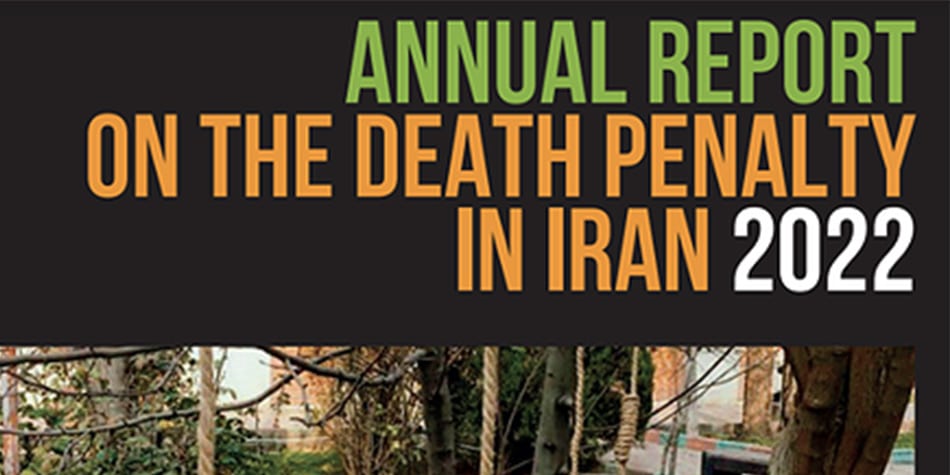
Article(s)
Rapport annuel sur la peine de mort en Iran : Augmentation alarmante des exécutions
By Coalition mondiale contre la peine de mort, on 18 September 2023
Au 12 septembre 2023, Iran Human Rights a indiqué qu’au moins 499 personnes, dont 13 femmes, avaient été exécutées en 202, représentant une augmentation alarmante par rapport à la même période en 2022.
2023
Iran (Islamic Republic of)

Article(s)
Annual Report on the Death Penalty in Iran: Alarming Increase in Executions
By World coalition agains the death penalty, on 18 September 2023
As of 12 September 2023, Iran Human Rights reported that at least 499 people, including 13 women were executed in 2023, which represents an alarming rise compared to the same period in 2022.
Iran (Islamic Republic of)
Document(s)
Annual Report on the Death Penalty in Iran 2022
By Iran Human Rights & ECPM, on 13 April 2023
2023
NGO report
Warning: Undefined variable $liste_type_doc in /home/worldcoa/coalition2020/wp-content/themes/WCADP/template-parts/contents-document.php on line 21
Warning: Undefined variable $liste_pays in /home/worldcoa/coalition2020/wp-content/themes/WCADP/template-parts/contents-document.php on line 40
Iran (Islamic Republic of)
Warning: Undefined variable $tag_langue in /home/worldcoa/coalition2020/wp-content/themes/WCADP/template-parts/contents-document.php on line 54
Warning: Undefined variable $lien_langue in /home/worldcoa/coalition2020/wp-content/themes/WCADP/template-parts/contents-document.php on line 55
fr
More details See the document
The 15th Annual Report on the Death Penalty in Iran, by Iran Human Rights and ECPM reveals the highest annual number of executions since 2015. At least 582 people were executed, an increase of 75% compared to 2021. In 2022, Iran’s authorities demonstrated how crucial the death penalty is to instil societal fear in order to hold onto power.
- Document type NGO report
- Countries list Iran (Islamic Republic of)
Warning: Undefined variable $liste_themes in /home/worldcoa/coalition2020/wp-content/themes/WCADP/template-parts/contents-document.php on line 114
- Available languages Rapport annuel sur la peine de mort en Iran 2022
Document(s)
Seven Winters in Teheran
By Steffi Niederzoll, on 24 March 2023
2023
Multimedia content
Warning: Undefined variable $liste_type_doc in /home/worldcoa/coalition2020/wp-content/themes/WCADP/template-parts/contents-document.php on line 21
Warning: Undefined variable $liste_themes in /home/worldcoa/coalition2020/wp-content/themes/WCADP/template-parts/contents-document.php on line 35
Gender
Warning: Undefined variable $liste_pays in /home/worldcoa/coalition2020/wp-content/themes/WCADP/template-parts/contents-document.php on line 40
Iran (Islamic Republic of)
Women
Warning: Undefined variable $tag_langue in /home/worldcoa/coalition2020/wp-content/themes/WCADP/template-parts/contents-document.php on line 54
Warning: Undefined variable $lien_langue in /home/worldcoa/coalition2020/wp-content/themes/WCADP/template-parts/contents-document.php on line 55
fr
More details See the document
In the summer of 2007, an older man approaches Reyhaneh Jabbari and asks the architecture student who has a side job as an interior decorator for her help in the design of offices. During the site inspection, he tries to rape her. Reyhaneh stabs him in self-defence. She is arrested for murder and sentenced to death. Reyhaneh was to spend the next seven years in prison while her family hired lawyers and made the public aware of the case. However, in spite of the efforts of national and international politicians and human rights organisations, the Iranian judiciary continued to cite the “right of blood-revenge”. This meant that, as long as Reyhaneh did not withdraw her accusations against the man, his family could demand her death. Reyhaneh stuck to her testimony and was hanged at the age of 26.
In her moving and shockingly topical documentary debut, director Steffi Niederzoll uses among other things original audio and visual material that was smuggled out of Iran. This film, in which Holy Spider actor Zar Amir Ebrahimi lends Reyhaneh her voice, makes visible the injustice in Iranian society and portrays an involuntary heroine who gave her life in the fight for women’s rights.
- Document type Multimedia content
- Countries list Iran (Islamic Republic of)
- Themes list Gender / Women
- Available languages Sept hivers à Téhéran
Document(s)
The Death Penalty for Drug Offences: Global Overview 2022
on 24 March 2023
NGO report
Warning: Undefined variable $liste_type_doc in /home/worldcoa/coalition2020/wp-content/themes/WCADP/template-parts/contents-document.php on line 21
Warning: Undefined variable $liste_pays in /home/worldcoa/coalition2020/wp-content/themes/WCADP/template-parts/contents-document.php on line 40
China
Democratic People's Republic of Korea
Warning: Undefined variable $liste_themes in /home/worldcoa/coalition2020/wp-content/themes/WCADP/template-parts/contents-document.php on line 35
Drug Offenses
Indonesia
Iran (Islamic Republic of)
Malaysia
Saudi Arabia
Singapore
Viet Nam
Warning: Undefined variable $tag_langue in /home/worldcoa/coalition2020/wp-content/themes/WCADP/template-parts/contents-document.php on line 85
More details See the document
Harm Reduction International has monitored the use of the death penalty for drug offences worldwide since our first ground-breaking publication on this issue in 2007. This report, our twelfth on the subject, continues our work of providing regular updates on legislative, policy and practical developments related to the use of capital punishment for drug offences, a practice which is a clear violation of international standards. As of December 2022, Harm Reduction International (HRI) recorded at least 285 executions for drug offences globally during the year, a 118% increase from 2021, and an 850% increase from 2020. Executions for drug offences are confirmed or assumed to have taken place in six countries: Iran, Saudi Arabia, Singapore, plus in China, North Korea and Vietnam – on which exact figures cannot be provided because of extreme opacity. Therefore, this figure is likely to reflect only a percentage of all drug-related executions worldwide. Confirmed death sentences for drug offences were also on the rise; with at least 303 people sentenced to death in 18 countries. This marks a 28% increase from 2021.
- Document type NGO report
- Countries list China / Democratic People's Republic of Korea / Indonesia / Iran (Islamic Republic of) / Malaysia / Saudi Arabia / Singapore / Viet Nam
- Themes list Drug Offenses
Warning: Undefined variable $lien_langue in /home/worldcoa/coalition2020/wp-content/themes/WCADP/template-parts/contents-document.php on line 127
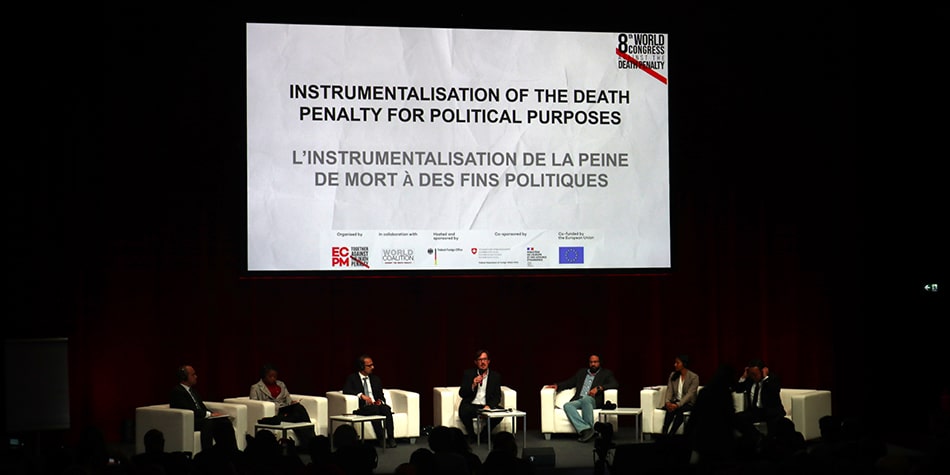
Article(s)
Comment la Peine de Mort est Politisée : Une Réflexion sur le 8ème Congrès Mondial Contre la Peine de Mort
By Dunia Schaffa, on 27 January 2023
Lors du 8e Congrès mondial contre la peine de mort, qui s’est tenu à Berlin, en Allemagne l’expression “la peine de mort est utilisée comme un outil politique” a été fréquemment utilisée – dans les panels, les tables rondes, les discours, et même parmi les participant·es qui prenaient un café entre deux événements du Congrès.
2023
Iran (Islamic Republic of)
United States

Article(s)
How the Death Penalty is Politicized: A Reflection on the 8th World Congress Against the Death Penalty
By Dunia Schaffa, on 27 January 2023
During the 8th World Congress Against the Death Penalty, in Berlin Germany, the phrase “the death penalty is being used as a political tool” was used frequently – in panels, in round tables, in speeches, even amongst the participants getting a coffee in between Congress events.
Iran (Islamic Republic of)
United States
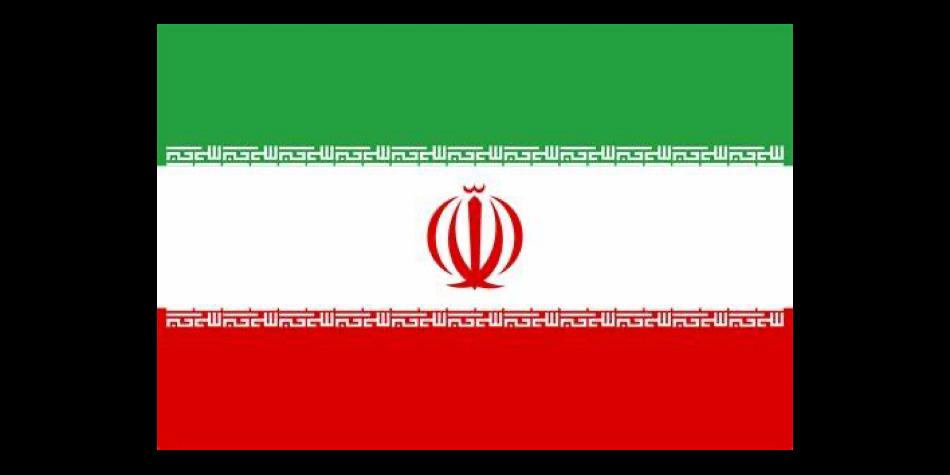
Article(s)
Déclaration de solidarité internationale avec les familles de personnes condamnées à mort en Iran
By La Coalition mondiale contre la peine de mort, on 15 September 2022
La Coalition mondiale contre la peine de mort exprime sa solidarité avec les familles et les proches des personnes condamnées à mort en Iran et avec les organisations de la société civile qui les soutiennent.
2022
Warning: Undefined variable $tmp in /home/worldcoa/coalition2020/wp-content/themes/WCADP/template-parts/contents.php on line 27
Iran (Islamic Republic of)

Article(s)
Statement of international solidarity with the families of people sentenced to death in Iran
By The World Coalition Against the Death Penalty, on 15 September 2022
The World Coalition Against the Death Penalty express its solidarity with the families and relatives of people who are sentenced to death in Iran and with the civil society organizations supporting them.
Warning: Undefined variable $tmp in /home/worldcoa/coalition2020/wp-content/themes/WCADP/template-parts/contents.php on line 27
Iran (Islamic Republic of)

Article(s)
Déclaration conjointe pour condamner les exécutions publiques et la recrudescence des exécutions en 2022 en Iran
By Coalition mondiale contre la peine de mort, on 11 August 2022
La Coalition mondiale contre la peine de mort condamne fermement la résurgence des exécutions publiques en Iran ainsi que l’augmentation des exécutions en 2022, qui vont à l’encontre des tendances internationales en faveur de l’abolition de la peine de mort.
2022
Warning: Undefined variable $tmp in /home/worldcoa/coalition2020/wp-content/themes/WCADP/template-parts/contents.php on line 27
Iran (Islamic Republic of)

Article(s)
Joint Statement to condemn the public executions and the surge of executions in 2022 in Iran
By World Coalition Against the Death Penalty, on 11 August 2022
The World Coalition Against the Death Penalty strongly condemn the resumption of public executions in Iran and the surge in the executions in 2022, which goes against the international trends towards abolition of the death penalty.
Warning: Undefined variable $tmp in /home/worldcoa/coalition2020/wp-content/themes/WCADP/template-parts/contents.php on line 27
Iran (Islamic Republic of)
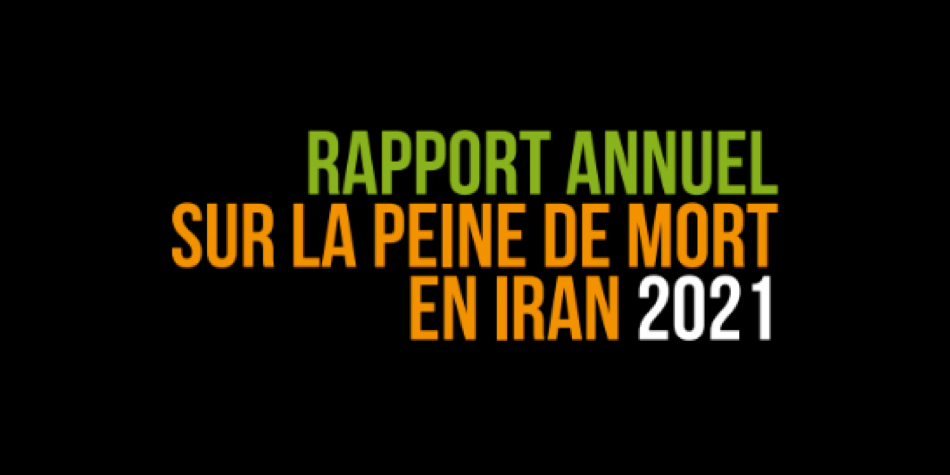
Article(s)
Peine de mort en Iran : Forte augmentation des exécutions
By Anissa Aguedal, on 10 June 2022
Une situation alarmante Le 28 avril 2022, Iran Human Rights (IHR) et Ensemble contre la peine de mort (ECPM) ont publié leur 14e rapport annuel sur la peine de mort en Iran, révélant une forte augmentation du nombre d’exécutions en 2021.
2022
Iran (Islamic Republic of)
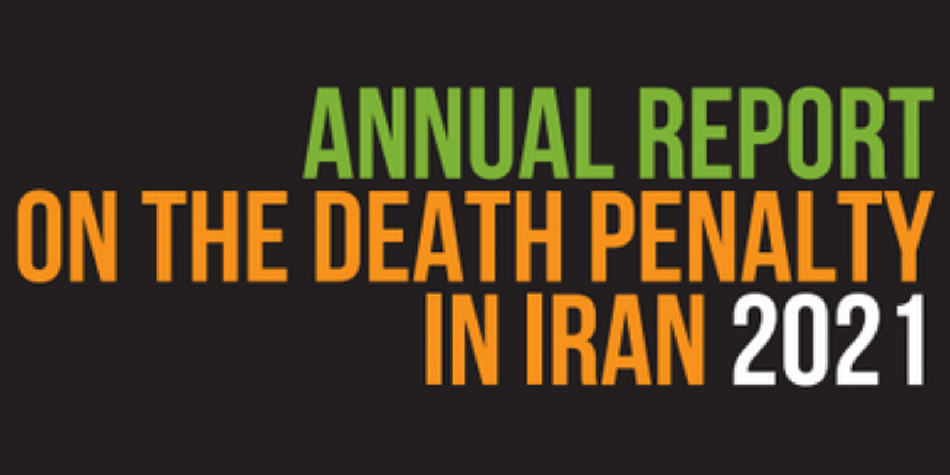
Article(s)
Death Penalty in Iran: Sharp Increase in Executions
By Anissa Aguedal, on 10 June 2022
An alarming situation On 28 April 2022, Iran Human Rights (IHR) and Ensemble contre la peine de mort (ECPM) released their 14th Annual Report on the Death Penalty in Iran, revealing an increase in the number of executions in 2021. At least 333 people were executed and 83,5% of these executions were not announced by […]
Iran (Islamic Republic of)
Document(s)
Annual Report on The Death Penalty In Iran 2021
on 28 April 2022
2022
NGO report
Warning: Undefined variable $liste_type_doc in /home/worldcoa/coalition2020/wp-content/themes/WCADP/template-parts/contents-document.php on line 21
Warning: Undefined variable $liste_pays in /home/worldcoa/coalition2020/wp-content/themes/WCADP/template-parts/contents-document.php on line 40
Iran (Islamic Republic of)
Warning: Undefined variable $tag_langue in /home/worldcoa/coalition2020/wp-content/themes/WCADP/template-parts/contents-document.php on line 54
Warning: Undefined variable $lien_langue in /home/worldcoa/coalition2020/wp-content/themes/WCADP/template-parts/contents-document.php on line 55
fr
More details See the document
The 120-page report assesses and analyses trends in death penalty practices in order to propose recommendations, tailored to the national context, and to engage in a constructive dialogue on capital punishment in the country.
The death penalty situation in the Islamic Republic of Iran remains alarming with a significant increase in executions in 2021 (+25%) and an increasing number of Iranian women being executed. The number of executions has doubled after the election of Ebrahim Raeisi as President, and as the Islamic Republic and Western governments negotiate to revive the nuclear deal, also called the Joint Comprehensive Plan of Action (JCPOA). These are some of the main findings of the 14th Annual Report on the Death Penalty in Iran by Iran Human Rights (IHRNGO) and Ensemble Contre la Peine de Mort (ECPM) released today.
- Document type NGO report
- Countries list Iran (Islamic Republic of)
Warning: Undefined variable $liste_themes in /home/worldcoa/coalition2020/wp-content/themes/WCADP/template-parts/contents-document.php on line 114
- Available languages Rapport annuel sur la peine de mort en Iran 2021
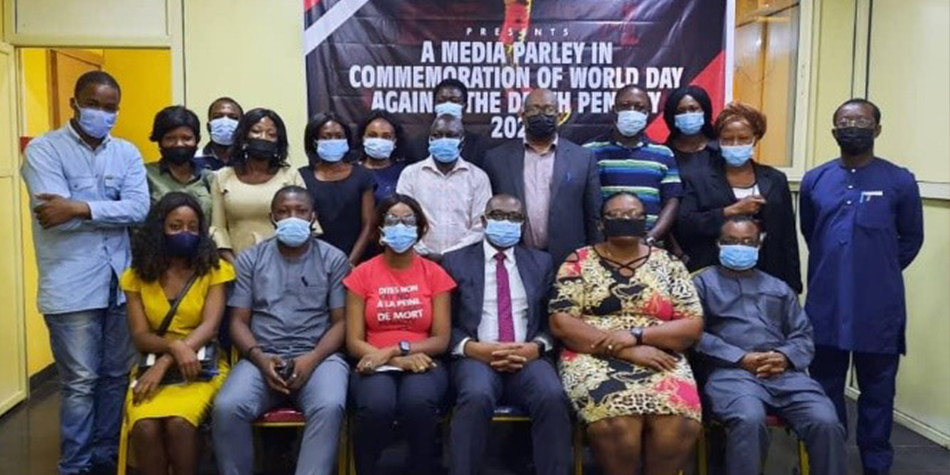
Article(s)
Women Sentenced to Death Showcased on the 19th World Day Against the Death Penalty
By Elise Garel, on 3 December 2021
With the theme “Women sentenced death: an invisible reality”, the 19th World Day Against the Death Penalty aimed to highlight the issues faced by women who are sentenced to death, executed, pardoned or exonerated around the world.
2021
Cameroon
Warning: Undefined variable $tmp in /home/worldcoa/coalition2020/wp-content/themes/WCADP/template-parts/contents.php on line 27
Indonesia
Iran (Islamic Republic of)
Morocco
Nigeria
Pakistan
Sierra Leone
United States
Women
Document(s)
Killing in the Name of God: State-sanctioned Violations of Religious Freedom
By Eleos Justice, Monash University, on 10 November 2021
2021
Academic report
Warning: Undefined variable $liste_type_doc in /home/worldcoa/coalition2020/wp-content/themes/WCADP/template-parts/contents-document.php on line 21
Warning: Undefined variable $liste_pays in /home/worldcoa/coalition2020/wp-content/themes/WCADP/template-parts/contents-document.php on line 40
Brunei Darussalam
Iran (Islamic Republic of)
Maldives
Mauritania
Nigeria
Qatar
Saudi Arabia
Somalia
United Arab Emirates
Yemen
Warning: Undefined variable $tag_langue in /home/worldcoa/coalition2020/wp-content/themes/WCADP/template-parts/contents-document.php on line 85
More details See the document
As of 2020, blasphemy was formally criminalised in some 84 countries. As many as 21 countries criminalised apostasy as of 2019. The legal penalties for such offences range from fines to imprisonment to corporal punishment—and in at least 12 countries, the death penalty.
This report examines the extent to which States commit, or are complicit in, killings that violate religious freedom. Focussing on the 12 States in which offences against religion are lawfully punishable by death, we examine four different types of State-sanctioned killings on the basis of religious offence (apostasy, blasphemy, or alike) or affiliation (most commonly, membership of a religious minority): judicial executions, extrajudicial killings, killings by civilians, and killings by extremist groups. We explore the relationship between the retention of the death penalty for religious offences and other forms of State-sanctioned killings motivated by alleged religious offending or by religious identity.
- Document type Academic report
- Countries list Brunei Darussalam / Iran (Islamic Republic of) / Maldives / Mauritania / Nigeria / Qatar / Saudi Arabia / Somalia / United Arab Emirates / Yemen
Warning: Undefined variable $liste_themes in /home/worldcoa/coalition2020/wp-content/themes/WCADP/template-parts/contents-document.php on line 114
Warning: Undefined variable $lien_langue in /home/worldcoa/coalition2020/wp-content/themes/WCADP/template-parts/contents-document.php on line 127
Document(s)
Women and the Death Penalty in Iran
By Iran Human Rights, on 8 October 2021
2021
NGO report
Warning: Undefined variable $liste_type_doc in /home/worldcoa/coalition2020/wp-content/themes/WCADP/template-parts/contents-document.php on line 21
Warning: Undefined variable $liste_pays in /home/worldcoa/coalition2020/wp-content/themes/WCADP/template-parts/contents-document.php on line 40
Iran (Islamic Republic of)
Warning: Undefined variable $liste_themes in /home/worldcoa/coalition2020/wp-content/themes/WCADP/template-parts/contents-document.php on line 35
Women
Warning: Undefined variable $tag_langue in /home/worldcoa/coalition2020/wp-content/themes/WCADP/template-parts/contents-document.php on line 85
More details See the document
In observation of the 2021 World Day Against the Death Penalty dedicated to women, Iran Human Rights is providing a report on the women executed in Iran over the last 12 years (2010-2021). The executions in this period are by no means representative of the Islamic Republic of Iran’s complete history of executing women; the number of female political prisoners executed in the 1980s must be acknowledged due to their sheer volume and abhorrent nature. But even today, there is ample evidence of their cruel and inhuman treatment of female prisoners, which will be highlighted in this report.
- Document type NGO report
- Countries list Iran (Islamic Republic of)
- Themes list Women
Warning: Undefined variable $lien_langue in /home/worldcoa/coalition2020/wp-content/themes/WCADP/template-parts/contents-document.php on line 127
Document(s)
The Arts and Human Rights: Introducing the “Sweet Destiny” Album and Film
on 25 August 2021
2021
Multimedia content
Warning: Undefined variable $liste_type_doc in /home/worldcoa/coalition2020/wp-content/themes/WCADP/template-parts/contents-document.php on line 21
Warning: Undefined variable $liste_pays in /home/worldcoa/coalition2020/wp-content/themes/WCADP/template-parts/contents-document.php on line 40
Iran (Islamic Republic of)
Warning: Undefined variable $tag_langue in /home/worldcoa/coalition2020/wp-content/themes/WCADP/template-parts/contents-document.php on line 85
More details See the document
Iran Human Rights (IHR); August 25, 2021: Pioneering Iranian alternative rock band, Kiosk have released a new musical film and album titled “Sweet Destiny.” Based on a historic 1853 photograph of a public execution by cannon fire in Iran, it is the first professional Farsi language album or film of its kind to be dedicated to the subject of the death penalty.
The story is narrated by the photographer who has been summoned to photograph the scene of the execution as proof and questions the defendant’s crime. Divided into 14 acts, the imagined story of the execution is layered with cultural and political metaphors and references. Kiosk’s rich and poignant songs create context, take the viewers through the history of Iran since 1853 and highlight the critical issues around the death penalty and human rights breaches in Iran. Using historical photographs, paintings and animation, Sweet Destiny is visually mesmerising and thought provoking with sprinkles of satire that masterfully cross cultural boundaries. The film is subtitled in English.
- Document type Multimedia content
- Countries list Iran (Islamic Republic of)
Warning: Undefined variable $liste_themes in /home/worldcoa/coalition2020/wp-content/themes/WCADP/template-parts/contents-document.php on line 114
Warning: Undefined variable $lien_langue in /home/worldcoa/coalition2020/wp-content/themes/WCADP/template-parts/contents-document.php on line 127
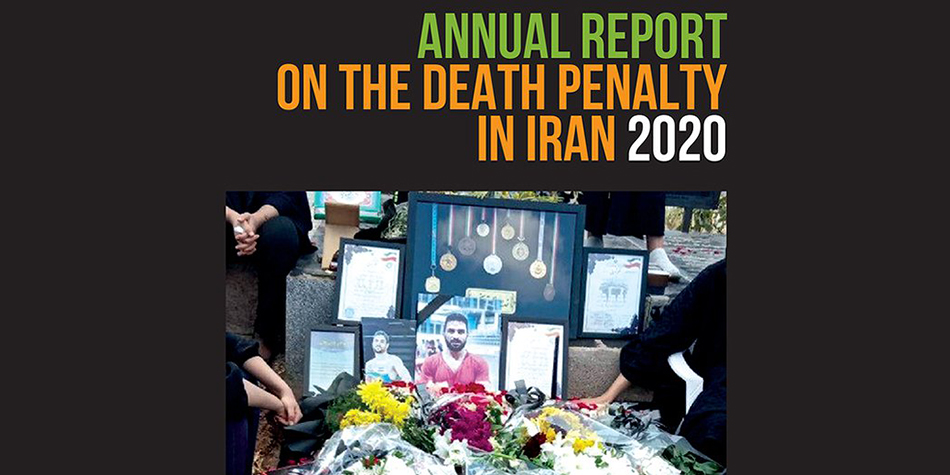
Article(s)
At least 267 People Executed in Iran in 2020 Despite COVID-19 Pandemic
By Iran Human Rights and Ensemble Contre La Peine de Mort (ECPM), on 5 May 2021
The 13th annual report on the death penalty by Iran Human Rights (IHR) and ECPM (Together Against the Death Penalty), shows that despite the COVID-19 pandemic, the Islamic Republic continued carrying out executions as in the previous years, and remains the only country to have executed juvenile offenders in 2020.
2021
Iran (Islamic Republic of)
Document(s)
Annual report on the death penalty in Iran 2020
By Iran Human Rights (IHR), ECPM (Together Against the Death Penalty), on 4 May 2021
2021
NGO report
Warning: Undefined variable $liste_type_doc in /home/worldcoa/coalition2020/wp-content/themes/WCADP/template-parts/contents-document.php on line 21
Warning: Undefined variable $liste_pays in /home/worldcoa/coalition2020/wp-content/themes/WCADP/template-parts/contents-document.php on line 40
Iran (Islamic Republic of)
Warning: Undefined variable $tag_langue in /home/worldcoa/coalition2020/wp-content/themes/WCADP/template-parts/contents-document.php on line 54
Warning: Undefined variable $lien_langue in /home/worldcoa/coalition2020/wp-content/themes/WCADP/template-parts/contents-document.php on line 55
fa
More details See the document
The 13th annual report on the death penalty by Iran Human Rights (IHR) and ECPM (Together Against the Death Penalty) provides an assessment and analysis of the death penalty trends in 2020 in the Islamic Republic of Iran.
- Document type NGO report
- Countries list Iran (Islamic Republic of)
Warning: Undefined variable $liste_themes in /home/worldcoa/coalition2020/wp-content/themes/WCADP/template-parts/contents-document.php on line 114
- Available languages گزارش ساالنه اعدام در ایران ۲۰۲۰
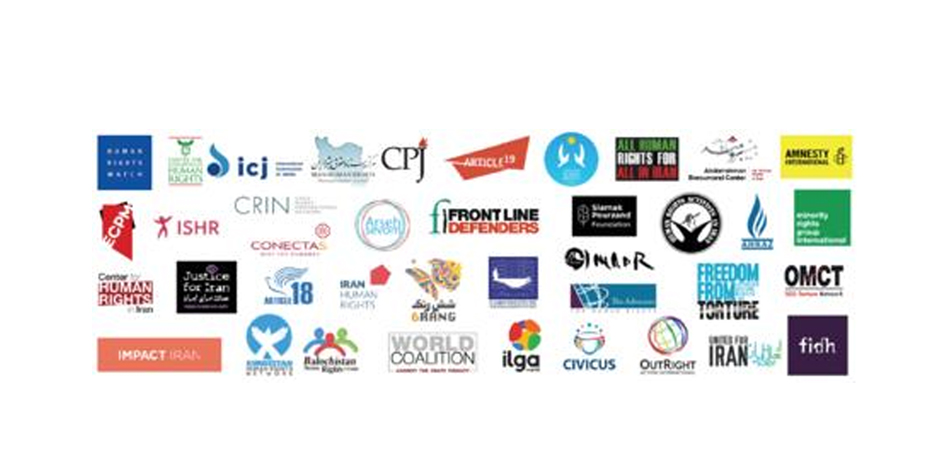
Article(s)
Widespread and systematic violations of human rights in Iran
By Impact Iran, on 12 March 2021
Joint letter sent to Member states of the United Nations Human Rights Council on 12 March 2021
2021
Iran (Islamic Republic of)
Document(s)
The Process of Abolishing the Death Penalty in Members States of the Organisation of Islamic Cooperation
By Nael Georges, ECPM, on 27 November 2020
2020
NGO report
Warning: Undefined variable $liste_type_doc in /home/worldcoa/coalition2020/wp-content/themes/WCADP/template-parts/contents-document.php on line 21
Warning: Undefined variable $liste_pays in /home/worldcoa/coalition2020/wp-content/themes/WCADP/template-parts/contents-document.php on line 40
Afghanistan
Albania
Algeria
Azerbaijan
Bahrain
Brunei Darussalam
Burkina Faso
Cameroon
Chad
Comoros
Djibouti
Egypt
Indonesia
Iran (Islamic Republic of)
Iraq
Jordan
Kazakhstan
Kuwait
Kyrgyzstan
Lebanon
Libya
Malaysia
Maldives
Mali
Morocco
Mozambique
Niger
Nigeria
Oman
Qatar
Saudi Arabia
Sierra Leone
Somalia
Sudan
Suriname
Tajikistan
Togo
Tunisia
Turkey
Turkmenistan
Uganda
United Arab Emirates
Uzbekistan
Warning: Undefined variable $tag_langue in /home/worldcoa/coalition2020/wp-content/themes/WCADP/template-parts/contents-document.php on line 54
Warning: Undefined variable $lien_langue in /home/worldcoa/coalition2020/wp-content/themes/WCADP/template-parts/contents-document.php on line 55
arfr
More details See the document
As the 47th session of the Council of Ministers of Foreign Affairs of the Organisation of Islamic Cooperation (OIC) is being held on 27-28 November 2020 in Niamey, Niger, ECPM and Nael Georges release this study, “The Process of Abolishing the Death Penalty in Member States of the Organisation of Islamic Cooperation”.
- Document type NGO report
- Countries list Afghanistan / Albania / Algeria / Azerbaijan / Bahrain / Brunei Darussalam / Burkina Faso / Cameroon / Chad / Comoros / Djibouti / Egypt / Indonesia / Iran (Islamic Republic of) / Iraq / Jordan / Kazakhstan / Kuwait / Kyrgyzstan / Lebanon / Libya / Malaysia / Maldives / Mali / Morocco / Mozambique / Niger / Nigeria / Oman / Qatar / Saudi Arabia / Sierra Leone / Somalia / Sudan / Suriname / Tajikistan / Togo / Tunisia / Turkey / Turkmenistan / Uganda / United Arab Emirates / Uzbekistan
Warning: Undefined variable $liste_themes in /home/worldcoa/coalition2020/wp-content/themes/WCADP/template-parts/contents-document.php on line 114
- Available languages مسارمإلغاء عقوبة الإعدافي الدول الأعضاءفي منظمة التعاونالإسلاميLes processus d’abolition de la peine de mort dans les États membres de l’Organisation de la coopération islamique (OCI)
Document(s)
No one is spared – The widespread use of the death penalty in Iran
By League for the Defence of Human Rights in Iran, on 5 November 2020
2020
Warning: Undefined variable $liste_themes in /home/worldcoa/coalition2020/wp-content/themes/WCADP/template-parts/contents-document.php on line 35
Drug Offenses
Fair Trial
Warning: Undefined variable $liste_pays in /home/worldcoa/coalition2020/wp-content/themes/WCADP/template-parts/contents-document.php on line 40
Iran (Islamic Republic of)
Juveniles
Women
Warning: Undefined variable $tag_langue in /home/worldcoa/coalition2020/wp-content/themes/WCADP/template-parts/contents-document.php on line 85
More details See the document
- Document type Array
- Countries list Iran (Islamic Republic of)
- Themes list Drug Offenses / Fair Trial / Juveniles / Women
Warning: Undefined variable $lien_langue in /home/worldcoa/coalition2020/wp-content/themes/WCADP/template-parts/contents-document.php on line 127
Warning: Array to string conversion in /home/worldcoa/coalition2020/wp-content/themes/WCADP/template-parts/contents-document.php on line 105

Article(s)
Groundbreaking Survey Reveals Iranians’ Attitudes Towards the Death Penalty
By GAMAAN Institute / World Coalition Against the Death Penalty, on 23 October 2020
This survey, conducted by the GAMAAN Institute between the 3rd and the 11th of September 2020, includes responses from about twenty thousand people living inside Iran.
2020
Warning: Undefined variable $tmp in /home/worldcoa/coalition2020/wp-content/themes/WCADP/template-parts/contents.php on line 27
Iran (Islamic Republic of)
Public Opinion
Document(s)
Note verbale dated 13 September 2019 from the Permanent Representative of Egypt to the United Nations addressed to the Secretary-General
By United Nations, on 15 October 2020
2020
United Nations report
Warning: Undefined variable $liste_type_doc in /home/worldcoa/coalition2020/wp-content/themes/WCADP/template-parts/contents-document.php on line 21
Warning: Undefined variable $liste_pays in /home/worldcoa/coalition2020/wp-content/themes/WCADP/template-parts/contents-document.php on line 40
Bahrain
Bangladesh
Botswana
Brunei Darussalam
Chad
China
Democratic People's Republic of Korea
Egypt
Ethiopia
Grenada
Iran (Islamic Republic of)
Iraq
Jamaica
Kuwait
Libya
Warning: Undefined variable $liste_themes in /home/worldcoa/coalition2020/wp-content/themes/WCADP/template-parts/contents-document.php on line 35
Moratorium
Nigeria
Oman
Pakistan
Papua New Guinea
Qatar
Saint Kitts and Nevis
Saint Lucia
Saint Vincent and the Grenadines
Saudi Arabia
Singapore
Sudan
Syrian Arab Republic
United Arab Emirates
Yemen
Zimbabwe
Warning: Undefined variable $tag_langue in /home/worldcoa/coalition2020/wp-content/themes/WCADP/template-parts/contents-document.php on line 54
Warning: Undefined variable $lien_langue in /home/worldcoa/coalition2020/wp-content/themes/WCADP/template-parts/contents-document.php on line 55
aresfrruzh-hant
More details See the document
The Permanent Missions to the United Nations inNew York listed below have the honour to refer to General Assembly resolution 73/175, entitled “Moratorium on the use of the death penalty”, which was adopted by the Assembly on 17 December 2018 by a recorded vote. The Permanent Missions wish to place on record that they are in persistent objection to any attempt to impose a moratorium on the use of the death penalty or its abolition in contravention of existing stipulations under international law, for the following reasons:
- Document type United Nations report
- Countries list Bahrain / Bangladesh / Botswana / Brunei Darussalam / Chad / China / Democratic People's Republic of Korea / Egypt / Ethiopia / Grenada / Iran (Islamic Republic of) / Iraq / Jamaica / Kuwait / Libya / Nigeria / Oman / Pakistan / Papua New Guinea / Qatar / Saint Kitts and Nevis / Saint Lucia / Saint Vincent and the Grenadines / Saudi Arabia / Singapore / Sudan / Syrian Arab Republic / United Arab Emirates / Yemen / Zimbabwe
- Themes list Moratorium
- Available languages مذكرة شفوية مؤرخة 13 أيلول/سبتمبر 2019 موجهة إلى الأمين العام من الممثل الدائم لمصر لدى الأمم المتحدةNota verbal de fecha 13 de septiembre de 2019 dirigida al Secretario Generalpor el Representante Permanente de Egipto ante las Naciones UnidasNote verbale datée du 13 septembre 2019, adressée au Secrétaire général par le Représentant permanent de l’Égypte auprès de l’Organisation des Nations UniesВербальная нота Постоянного представителя Египта при Организации Объединенных Наций от 13 сентября 2019 года на имя Генерального секретаря2019年9月13日埃及常驻联合国代表给秘书长的普通照会
Document(s)
: Waiting for capital punishment
By Sadegh Souri, on 8 September 2020
2020
Academic report
Warning: Undefined variable $liste_type_doc in /home/worldcoa/coalition2020/wp-content/themes/WCADP/template-parts/contents-document.php on line 21
Warning: Undefined variable $liste_pays in /home/worldcoa/coalition2020/wp-content/themes/WCADP/template-parts/contents-document.php on line 40
Iran (Islamic Republic of)
Warning: Undefined variable $tag_langue in /home/worldcoa/coalition2020/wp-content/themes/WCADP/template-parts/contents-document.php on line 85
More details See the document
According to Iranian law, the age when girls are held accountable for criminal punishment is nine years old, while international conventions have banned the death penalty for persons under 18. In Iran, the death penalty for children is used for crimes such as murder, drug trafficking, and armed robbery.Pursuant to the passing of new laws in recent years, the Iranian Judiciary System detains children in Juvenile Delinquents Correction Centers after their death sentence verdict, and a large number of them are hanged upon reaching age 18.
- Document type Academic report
- Countries list Iran (Islamic Republic of)
Warning: Undefined variable $liste_themes in /home/worldcoa/coalition2020/wp-content/themes/WCADP/template-parts/contents-document.php on line 114
Warning: Undefined variable $liste_themes in /home/worldcoa/coalition2020/wp-content/themes/WCADP/template-parts/contents-document.php on line 121
- Themes list Juveniles, Women, Death Row Conditions,
Warning: Undefined variable $lien_langue in /home/worldcoa/coalition2020/wp-content/themes/WCADP/template-parts/contents-document.php on line 127
Document(s)
Note verbale dated 28 July 2015 from the Permanent Mission of Egypt to the United Nations addressed to the Secretary-General
By United Nations, on 8 September 2020
United Nations report
Warning: Undefined variable $liste_type_doc in /home/worldcoa/coalition2020/wp-content/themes/WCADP/template-parts/contents-document.php on line 21
Warning: Undefined variable $liste_pays in /home/worldcoa/coalition2020/wp-content/themes/WCADP/template-parts/contents-document.php on line 40
Antigua and Barbuda
Bangladesh
Botswana
Brunei Darussalam
China
Democratic People's Republic of Korea
Egypt
Ethiopia
Guyana
Iran (Islamic Republic of)
Iraq
Jamaica
Kuwait
Libya
Malaysia
Warning: Undefined variable $liste_themes in /home/worldcoa/coalition2020/wp-content/themes/WCADP/template-parts/contents-document.php on line 35
Moratorium
Nigeria
Oman
Pakistan
Qatar
Saudi Arabia
Singapore
Sudan
Syrian Arab Republic
Trinidad and Tobago
United Arab Emirates
Yemen
Zimbabwe
Warning: Undefined variable $tag_langue in /home/worldcoa/coalition2020/wp-content/themes/WCADP/template-parts/contents-document.php on line 54
Warning: Undefined variable $lien_langue in /home/worldcoa/coalition2020/wp-content/themes/WCADP/template-parts/contents-document.php on line 55
aresfrruzh-hant
More details See the document
The permanent missions to the United Nations in New York listed below have the honour to refer to General Assembly resolution 69/186, entitled “Moratorium on the use of the death penalty”, which was adopted by the Third Committee on 21 November 2014 and subsequently by the General Assembly on 18 December 2014 by a recorded vote. The permanent missions wish to place on record that they are in persistent objection to any attempt to impose a moratorium on the use of the death penalty or its abolition in contravention of existing stipulations under international law, for the following reasons:
- Document type United Nations report
- Countries list Antigua and Barbuda / Bangladesh / Botswana / Brunei Darussalam / China / Democratic People's Republic of Korea / Egypt / Ethiopia / Guyana / Iran (Islamic Republic of) / Iraq / Jamaica / Kuwait / Libya / Malaysia / Nigeria / Oman / Pakistan / Qatar / Saudi Arabia / Singapore / Sudan / Syrian Arab Republic / Trinidad and Tobago / United Arab Emirates / Yemen / Zimbabwe
- Themes list Moratorium
- Available languages مذكرة شفوية مؤرخة 28 تموز/يوليه ٢٠١٥ موجهة إلى الأمين العام من البعثة الدائمة لمصر لدى الأمم المتحدةNota verbal de fecha 28 de julio de 2015 dirigida al Secretario General por la Misión Permanente de Egipto ante las Naciones UnidasNote verbale datée du 28 juillet 2015, adressée au Secrétaire général par la Mission permanente de l’Égypte auprès de l’Organisation des Nations UniesВербальная нота Постоянного представительства Египта при Организации Объединенных Наций от 28 июля 2015 года на имя Генерального секретаря2015年7月28日埃及常驻联合国代表团给秘书长的普通照会
Document(s)
Note verbale dated 16 April 2013 from the Permanent Mission of Egypt to the United Nations addressed to the Secretary-General
By United Nations, on 8 September 2020
United Nations report
Warning: Undefined variable $liste_type_doc in /home/worldcoa/coalition2020/wp-content/themes/WCADP/template-parts/contents-document.php on line 21
Warning: Undefined variable $liste_pays in /home/worldcoa/coalition2020/wp-content/themes/WCADP/template-parts/contents-document.php on line 40
Afghanistan
Antigua and Barbuda
Bahrain
Bangladesh
Barbados
Botswana
Brunei Darussalam
Chad
China
Democratic People's Republic of Korea
Egypt
Equatorial Guinea
Eritrea
Eswatini
Ethiopia
Grenada
Guyana
India
Iran (Islamic Republic of)
Iraq
Jamaica
Kuwait
Lao People's Democratic Republic
Libya
Malaysia
Mauritania
Warning: Undefined variable $liste_themes in /home/worldcoa/coalition2020/wp-content/themes/WCADP/template-parts/contents-document.php on line 35
Moratorium
Myanmar
Nigeria
Oman
Pakistan
Papua New Guinea
Qatar
Saint Kitts and Nevis
Saint Lucia
Saint Vincent and the Grenadines
Saudi Arabia
Singapore
Solomon Islands
Somalia
Sudan
Syrian Arab Republic
Tonga
Trinidad and Tobago
Uganda
United Arab Emirates
Yemen
Zimbabwe
Warning: Undefined variable $tag_langue in /home/worldcoa/coalition2020/wp-content/themes/WCADP/template-parts/contents-document.php on line 54
Warning: Undefined variable $lien_langue in /home/worldcoa/coalition2020/wp-content/themes/WCADP/template-parts/contents-document.php on line 55
aresfrruzh-hant
More details See the document
The permanent missions to the United Nations in New York listed below have the honour to refer to General Assembly resolution 67/176, entitled “Moratorium on the use of the death penalty”, which was adopted by the Third Committee on 19 November 2012, and subsequently by the General Assembly on 20 December 2012 by a recorded vote. The permanent missions wish to place on record that they are in persistent objection to any attempt to impose a moratorium on the use of the death penalty or its abolition in contravention of existing stipulations under international law, for the following reasons:
- Document type United Nations report
- Countries list Afghanistan / Antigua and Barbuda / Bahrain / Bangladesh / Barbados / Botswana / Brunei Darussalam / Chad / China / Democratic People's Republic of Korea / Egypt / Equatorial Guinea / Eritrea / Eswatini / Ethiopia / Grenada / Guyana / India / Iran (Islamic Republic of) / Iraq / Jamaica / Kuwait / Lao People's Democratic Republic / Libya / Malaysia / Mauritania / Myanmar / Nigeria / Oman / Pakistan / Papua New Guinea / Qatar / Saint Kitts and Nevis / Saint Lucia / Saint Vincent and the Grenadines / Saudi Arabia / Singapore / Solomon Islands / Somalia / Sudan / Syrian Arab Republic / Tonga / Trinidad and Tobago / Uganda / United Arab Emirates / Yemen / Zimbabwe
- Themes list Moratorium
- Available languages مذكرة شفوية مؤرخة 16 نيسان/أبريل 2013 موجهة إلى الأمين العام من البعثة الدائمة لمصر لدى الأمم المتحدةNota verbal de fecha 16 de abril de 2013 dirigida al Secretario General por la Misión Permanente de Egipto ante las Naciones UnidasNote verbale datée du 16 avril 2013, adressée au Secrétaire général par la Mission permanente de l’Égypte auprès de l’Organisation des Nations UniesВербальная нота Постоянного представительства Египта при Организации Объединенных Наций от 16 апреля 2013 года на имя Генерального секретаря2013年4月16日埃及常驻联合国代表团给秘书长的普通照会
Document(s)
Death penalty in Iran: A State terror policy – Special Update for 11th World Day against the Death Penalty
By International Federation for Human Rights (FIDH), on 8 September 2020
NGO report
Warning: Undefined variable $liste_type_doc in /home/worldcoa/coalition2020/wp-content/themes/WCADP/template-parts/contents-document.php on line 21
Warning: Undefined variable $liste_pays in /home/worldcoa/coalition2020/wp-content/themes/WCADP/template-parts/contents-document.php on line 40
Iran (Islamic Republic of)
Warning: Undefined variable $tag_langue in /home/worldcoa/coalition2020/wp-content/themes/WCADP/template-parts/contents-document.php on line 79
Warning: Undefined variable $lien_langue in /home/worldcoa/coalition2020/wp-content/themes/WCADP/template-parts/contents-document.php on line 80
fa
More details See the document
The change of administration in the Islamic Republic of Iran (IRI) and taking of office by a new president on 3 August 2013 has not brought any change as far as the death penalty is concerned. Between the 14 June presidential election and 1st October, more than 200 people have been reportedly executed, including possibly three people who may have been younger than 18 at the time of the commission of the alleged crimes.Against this backdrop, FIDH and its member organisation, LDDHI, have decided topublish the present report to analyse the new penal laws in force in Iran that are invoked consistently to violate the right to life in general and to execute child offenders. Coinciding with 10 October 2013, World Day against the Death Penalty, this report aimsto serve as an update on the current state of application of the death penalty in the IRI.
- Document type NGO report
- Countries list Iran (Islamic Republic of)
Warning: Undefined variable $liste_themes in /home/worldcoa/coalition2020/wp-content/themes/WCADP/template-parts/contents-document.php on line 114
Warning: Undefined variable $liste_themes in /home/worldcoa/coalition2020/wp-content/themes/WCADP/template-parts/contents-document.php on line 121
- Themes list Juveniles, Drug Offences, Hanging, Country/Regional profiles,
- Available languages مجازﺯاﺍتﺕ اﺍعداﺍمﻡ دﺩرﺭ اﺍﯾﻳراﺍنﻥ - سﯿﻴاست دﺩوﻭلتﯽﻲ اﺍﯾﻳجادﺩ وﻭحشت - وﻭﯾﻳژهﻩ ﯾﻳازﺯدﺩهمﯿﻴن رﺭوﻭزﺯ جهانﯽﻲ ضد مجازﺯاﺍتﺕ اﺍعداﺍمﻡ
Document(s)
One Iranian lawyer’s fight to save juveniles from execution
By Amnesty International / The Guardian, on 8 September 2020
Academic report
Warning: Undefined variable $liste_type_doc in /home/worldcoa/coalition2020/wp-content/themes/WCADP/template-parts/contents-document.php on line 21
Warning: Undefined variable $liste_pays in /home/worldcoa/coalition2020/wp-content/themes/WCADP/template-parts/contents-document.php on line 40
Iran (Islamic Republic of)
Warning: Undefined variable $tag_langue in /home/worldcoa/coalition2020/wp-content/themes/WCADP/template-parts/contents-document.php on line 85
More details See the document
As part of Amnesty International’s 2012 death penalty campaign the Guardian and animators from Sherbet tell in this short animation fim the extraordinary story of Mohammad Mostafaei, a lawyer who has saved 20 of the 40 juveniles he has defended from execution in Iran. Actor Paul Bettany speaks the lawyer’s words.
- Document type Academic report
- Countries list Iran (Islamic Republic of)
Warning: Undefined variable $liste_themes in /home/worldcoa/coalition2020/wp-content/themes/WCADP/template-parts/contents-document.php on line 114
Warning: Undefined variable $liste_themes in /home/worldcoa/coalition2020/wp-content/themes/WCADP/template-parts/contents-document.php on line 121
- Themes list Innocence,
Warning: Undefined variable $lien_langue in /home/worldcoa/coalition2020/wp-content/themes/WCADP/template-parts/contents-document.php on line 127
Document(s)
Note verbale dated 11 March 2011 from the Permanent Mission of Egypt to the United Nations addressed to the Secretary-General
By United Nations, on 8 September 2020
United Nations report
Warning: Undefined variable $liste_type_doc in /home/worldcoa/coalition2020/wp-content/themes/WCADP/template-parts/contents-document.php on line 21
Warning: Undefined variable $liste_pays in /home/worldcoa/coalition2020/wp-content/themes/WCADP/template-parts/contents-document.php on line 40
Afghanistan
Antigua and Barbuda
Bahamas
Bahrain
Bangladesh
Barbados
Botswana
Brunei Darussalam
Central African Republic
Chad
China
Democratic People's Republic of Korea
Democratic Republic of the Congo
Dominica
Egypt
Equatorial Guinea
Eritrea
Eswatini
Ethiopia
Grenada
Guinea
Guyana
Indonesia
Iran (Islamic Republic of)
Iraq
Jamaica
Kuwait
Lao People's Democratic Republic
Libya
Malaysia
Warning: Undefined variable $liste_themes in /home/worldcoa/coalition2020/wp-content/themes/WCADP/template-parts/contents-document.php on line 35
Moratorium
Myanmar
Niger
Nigeria
Oman
Pakistan
Papua New Guinea
Qatar
Saint Kitts and Nevis
Saint Lucia
Saint Vincent and the Grenadines
Saudi Arabia
Sierra Leone
Singapore
Solomon Islands
Somalia
Sudan
Syrian Arab Republic
Tonga
Trinidad and Tobago
Uganda
United Arab Emirates
Yemen
Zimbabwe
Warning: Undefined variable $tag_langue in /home/worldcoa/coalition2020/wp-content/themes/WCADP/template-parts/contents-document.php on line 54
Warning: Undefined variable $lien_langue in /home/worldcoa/coalition2020/wp-content/themes/WCADP/template-parts/contents-document.php on line 55
aresfrruzh-hant
More details See the document
The permanent missions to the United Nations in New York listed below have the honour to refer to General Assembly resolution 65/206, entitled “Moratorium on the use of the death penalty”, which was adopted by the Third Committee on 11 November 2010, and subsequently by the General Assembly on 21 December 2010 by a recorded vote. The permanent missions wish to place on record that they are in persistent objection to any attempt to impose a moratorium on the use of the death penalty or its abolition in contravention of existing stipulations under international law, for the following reasons:
- Document type United Nations report
- Countries list Afghanistan / Antigua and Barbuda / Bahamas / Bahrain / Bangladesh / Barbados / Botswana / Brunei Darussalam / Central African Republic / Chad / China / Democratic People's Republic of Korea / Democratic Republic of the Congo / Dominica / Egypt / Equatorial Guinea / Eritrea / Eswatini / Ethiopia / Grenada / Guinea / Guyana / Indonesia / Iran (Islamic Republic of) / Iraq / Jamaica / Kuwait / Lao People's Democratic Republic / Libya / Malaysia / Myanmar / Niger / Nigeria / Oman / Pakistan / Papua New Guinea / Qatar / Saint Kitts and Nevis / Saint Lucia / Saint Vincent and the Grenadines / Saudi Arabia / Sierra Leone / Singapore / Solomon Islands / Somalia / Sudan / Syrian Arab Republic / Tonga / Trinidad and Tobago / Uganda / United Arab Emirates / Yemen / Zimbabwe
- Themes list Moratorium
- Available languages مذكرة شفوية مؤرخة 11 آذار/مارس 2011 موجَّهة إلى الأمين العام من البعثة الدائمة لمصر لدى الأمم المتحدةNota verbal de fecha 11 de marzo de 2011 dirigida al Secretario General por la Misión Permanente de Egipto ante las Naciones UnidasNote verbale datée du 11 mars 2011, adressée au Secrétaire général par la Mission permanente de l’Égypte auprès de l’Organisation des Nations UniesВербальная нота Постоянного представительства Египта при Организации Объединенных Наций от 11 марта 2011 года на имя Генерального секретаря2011年3月11日埃及常驻联合国代表团给秘书长的普通照会
Document(s)
Iran/death penalty: A state terror policy – Special edition for the 4th World Congress against the death penalty
By Bijan Baharan / International Federation for Human Rights (FIDH), on 8 September 2020
NGO report
Warning: Undefined variable $liste_type_doc in /home/worldcoa/coalition2020/wp-content/themes/WCADP/template-parts/contents-document.php on line 21
Warning: Undefined variable $liste_pays in /home/worldcoa/coalition2020/wp-content/themes/WCADP/template-parts/contents-document.php on line 40
Iran (Islamic Republic of)
Warning: Undefined variable $tag_langue in /home/worldcoa/coalition2020/wp-content/themes/WCADP/template-parts/contents-document.php on line 79
Warning: Undefined variable $lien_langue in /home/worldcoa/coalition2020/wp-content/themes/WCADP/template-parts/contents-document.php on line 80
fa
More details See the document
This report covers the various aspects of the topic including: domestic laws, international legal framework, execution of juvenile offenders, religious and ethnic minorities, and methods of execution. According to the report, there are over 20 main categories of offences, some of them with several sub-categories, in the IRI, which are punishable by the death penalty. The majority of those “offences” are certainly not among “the most serious crimes.” Some others should not be considered as “offences” at all. In conclusion, FIDH issued a wide set of recommendations to the IRI and the international community. Among others, it recommended the adoption of an immediate moratorium on executions in light of the serious shortcomings of the guarantees of due process and fair trial.
- Document type NGO report
- Countries list Iran (Islamic Republic of)
Warning: Undefined variable $liste_themes in /home/worldcoa/coalition2020/wp-content/themes/WCADP/template-parts/contents-document.php on line 114
Warning: Undefined variable $liste_themes in /home/worldcoa/coalition2020/wp-content/themes/WCADP/template-parts/contents-document.php on line 121
- Themes list Minorities, Country/Regional profiles,
- Available languages ایران: مجازات اعدام سیاست دولتی ایجاد وحشت ـ ویژه نامه برای کنگره ی جهانی ضد مجازات اعدام
Document(s)
Note verbale dated 10 February 2009 from the Permanent Missions to the United Nations of Afghanistan, the Bahamas, […] and Zimbabwe addressed to the Secretary-General
By United Nations, on 8 September 2020
United Nations report
Warning: Undefined variable $liste_type_doc in /home/worldcoa/coalition2020/wp-content/themes/WCADP/template-parts/contents-document.php on line 21
Warning: Undefined variable $liste_pays in /home/worldcoa/coalition2020/wp-content/themes/WCADP/template-parts/contents-document.php on line 40
Afghanistan
Bahamas
Bahrain
Bangladesh
Barbados
Botswana
Brunei Darussalam
Central African Republic
Chad
China
Comoros
Democratic People's Republic of Korea
Dominica
Egypt
Equatorial Guinea
Eritrea
Eswatini
Ethiopia
Fiji
Gambia
Grenada
Guinea
Guyana
Indonesia
Iran (Islamic Republic of)
Iraq
Jamaica
Japan
Jordan
Kuwait
Lao People's Democratic Republic
Libya
Malaysia
Maldives
Mauritania
Mongolia
Warning: Undefined variable $liste_themes in /home/worldcoa/coalition2020/wp-content/themes/WCADP/template-parts/contents-document.php on line 35
Moratorium
Myanmar
Niger
Nigeria
Papua New Guinea
Qatar
Saint Kitts and Nevis
Saint Lucia
Saint Vincent and the Grenadines
Saudi Arabia
Singapore
Solomon Islands
Somalia
Sudan
Suriname
Syrian Arab Republic
Thailand
Tonga
Trinidad and Tobago
Uganda
United Arab Emirates
Yemen
Zimbabwe
Warning: Undefined variable $tag_langue in /home/worldcoa/coalition2020/wp-content/themes/WCADP/template-parts/contents-document.php on line 54
Warning: Undefined variable $lien_langue in /home/worldcoa/coalition2020/wp-content/themes/WCADP/template-parts/contents-document.php on line 55
aresfrruzh-hant
More details See the document
The Permanent Missions to the United Nations in New York listed below present their compliments to the Secretary-General of the United Nations and have the honour to refer to resolution 62/149, entitled “Moratorium on the use of the death penalty”, which was adopted by the Third Committee on 15 November 2007, and subsequently by the General Assembly on 18 December 2007 by a recorded vote. The Permanent Missions wish to place on record that they are in persistent objection to any attempt to impose a moratorium on the use of the death penalty or its abolition in contravention to existing stipulations under international law, for the following reasons:
- Document type United Nations report
- Countries list Afghanistan / Bahamas / Bahrain / Bangladesh / Barbados / Botswana / Brunei Darussalam / Central African Republic / Chad / China / Comoros / Democratic People's Republic of Korea / Dominica / Egypt / Equatorial Guinea / Eritrea / Eswatini / Ethiopia / Fiji / Gambia / Grenada / Guinea / Guyana / Indonesia / Iran (Islamic Republic of) / Iraq / Jamaica / Japan / Jordan / Kuwait / Lao People's Democratic Republic / Libya / Malaysia / Maldives / Mauritania / Mongolia / Myanmar / Niger / Nigeria / Papua New Guinea / Qatar / Saint Kitts and Nevis / Saint Lucia / Saint Vincent and the Grenadines / Saudi Arabia / Singapore / Solomon Islands / Somalia / Sudan / Suriname / Syrian Arab Republic / Thailand / Tonga / Trinidad and Tobago / Uganda / United Arab Emirates / Yemen / Zimbabwe
- Themes list Moratorium
- Available languages مذكرةشفويةمؤرخة١٠شـباط/فبرايـر٢٠٠٩Nota verbal de fecha 10 de febrero de 2009 dirigida al Secretario General por las misiones permanentes ante las Naciones Unidas del Afganistán, la Arabia Saudita, [...] y ZimbabweNote verbale datée du 10 février 2009, adressée au Secrétaire général par les Missions permanentes auprès de l’Organisation des Nations Unies de l’Afghanistan, de l’Arabie saoudite, [...] et du ZimbabweВербальная нота постоянных представительств Афганистана, БагамскихОстровов, […] и Чада при Организации Объединенных Наций от 10 февраля 2009 года на имя Генерального секретаря9年2月10日阿富汗、巴哈马、巴林、[...] 也门和津巴布韦常驻联合国代表团给秘书长的普通照会
Document(s)
ایران: مجازات اعدام – سیاست دولتی ایجاد وحشت
By International Federation for Human Rights (FIDH) / Antoine Bernard, on 8 September 2020
NGO report
Warning: Undefined variable $liste_type_doc in /home/worldcoa/coalition2020/wp-content/themes/WCADP/template-parts/contents-document.php on line 21
Warning: Undefined variable $liste_pays in /home/worldcoa/coalition2020/wp-content/themes/WCADP/template-parts/contents-document.php on line 40
Iran (Islamic Republic of)
Warning: Undefined variable $tag_langue in /home/worldcoa/coalition2020/wp-content/themes/WCADP/template-parts/contents-document.php on line 79
Warning: Undefined variable $lien_langue in /home/worldcoa/coalition2020/wp-content/themes/WCADP/template-parts/contents-document.php on line 80
en
More details See the document
در دوراني که حرکت به سوي لغو مجازات اعدام در سراسر جهان رو به گسترش است، تمايز جمهوري اسلامي ايران در تعداد زياد اعدام هايي است که در شرايطي آشکارا ناقض�? موازين بين المللي حقوق بشر انجام مي پذيرد. محاکمه های ناعادلانه، اعدام نوجوانان، هد�? گیری اقلیت های قومی و مذهبی… مجازات اعدام در نقض آشکار تعهدات ایران بر اساس قانون بین المللی حقوق بشر انجام می پذیرد.
- Document type NGO report
- Countries list Iran (Islamic Republic of)
Warning: Undefined variable $liste_themes in /home/worldcoa/coalition2020/wp-content/themes/WCADP/template-parts/contents-document.php on line 114
Warning: Undefined variable $liste_themes in /home/worldcoa/coalition2020/wp-content/themes/WCADP/template-parts/contents-document.php on line 121
- Themes list Minorities, Fair Trial, Country/Regional profiles,
- Available languages Iran/death penalty: A state terror policy
Document(s)
Note verbale dated 11 January 2008 from the Permanent Missions to the United Nations of Afghanistan, Antigua and Barbuda, […] and Zimbabwe addressed to the Secretary-General
By United Nations, on 8 September 2020
United Nations report
Warning: Undefined variable $liste_type_doc in /home/worldcoa/coalition2020/wp-content/themes/WCADP/template-parts/contents-document.php on line 21
Warning: Undefined variable $liste_pays in /home/worldcoa/coalition2020/wp-content/themes/WCADP/template-parts/contents-document.php on line 40
Afghanistan
Antigua and Barbuda
Bahamas
Bahrain
Bangladesh
Barbados
Botswana
Brunei Darussalam
Central African Republic
China
Comoros
Democratic People's Republic of Korea
Dominica
Egypt
Equatorial Guinea
Eritrea
Eswatini
Ethiopia
Fiji
Grenada
Guinea
Guyana
Indonesia
Iran (Islamic Republic of)
Iraq
Jamaica
Japan
Jordan
Kuwait
Lao People's Democratic Republic
Libya
Malaysia
Maldives
Mauritania
Mongolia
Warning: Undefined variable $liste_themes in /home/worldcoa/coalition2020/wp-content/themes/WCADP/template-parts/contents-document.php on line 35
Moratorium
Myanmar
Nigeria
Oman
Pakistan
Papua New Guinea
Qatar
Saint Kitts and Nevis
Saint Lucia
Saint Vincent and the Grenadines
Saudi Arabia
Singapore
Solomon Islands
Somalia
Sudan
Suriname
Syrian Arab Republic
Thailand
Tonga
Trinidad and Tobago
Uganda
United Arab Emirates
Yemen
Zimbabwe
Warning: Undefined variable $tag_langue in /home/worldcoa/coalition2020/wp-content/themes/WCADP/template-parts/contents-document.php on line 54
Warning: Undefined variable $lien_langue in /home/worldcoa/coalition2020/wp-content/themes/WCADP/template-parts/contents-document.php on line 55
aresfrruzh-hant
More details See the document
The Permanent Missions to the United Nations in New York listed below present their compliments to the Secretary-General of the United Nations and have the honour to refer to resolution 62/149, entitled “Moratorium on the use of the death penalty”, which was adopted by the Third Committee on 15 November 2007, and subsequently by the General Assembly on 18 December 2007 by a recorded vote. The Permanent Missions wish to place on record that they are in persistent objection to any attempt to impose a moratorium on the use of the death penalty or its abolition in contravention to existing stipulations under international law, for the following reasons:
- Document type United Nations report
- Countries list Afghanistan / Antigua and Barbuda / Bahamas / Bahrain / Bangladesh / Barbados / Botswana / Brunei Darussalam / Central African Republic / China / Comoros / Democratic People's Republic of Korea / Dominica / Egypt / Equatorial Guinea / Eritrea / Eswatini / Ethiopia / Fiji / Grenada / Guinea / Guyana / Indonesia / Iran (Islamic Republic of) / Iraq / Jamaica / Japan / Jordan / Kuwait / Lao People's Democratic Republic / Libya / Malaysia / Maldives / Mauritania / Mongolia / Myanmar / Nigeria / Oman / Pakistan / Papua New Guinea / Qatar / Saint Kitts and Nevis / Saint Lucia / Saint Vincent and the Grenadines / Saudi Arabia / Singapore / Solomon Islands / Somalia / Sudan / Suriname / Syrian Arab Republic / Thailand / Tonga / Trinidad and Tobago / Uganda / United Arab Emirates / Yemen / Zimbabwe
- Themes list Moratorium
- Available languages مؤرخــةشــفويةمــذكرة11الثــانيكــانون/ينــاير2008Nota verbal de fecha 11 de enero de 2008 dirigida al Secretario General por las Misiones Permanentes ante las Naciones Unidas del Afganistán, Antigua y Barbuda, [...] y Zimbabwe ante las Naciones UnidasNote verbale datée du 11 janvier 2008, adressée au Secrétaire général par les missions permanentes auprès de l’Organisation des Nations Unies de l’Afghanistan, d’Antigua-et-Barbuda, [...] et du ZimbabweВербальная нота Постоянных представительств Антигуа и Барбуды, Афганистана, […] и Японии при Организации Объединенных Наций от 11 января 2008 года на имя Генерального секретаря普通照会2007
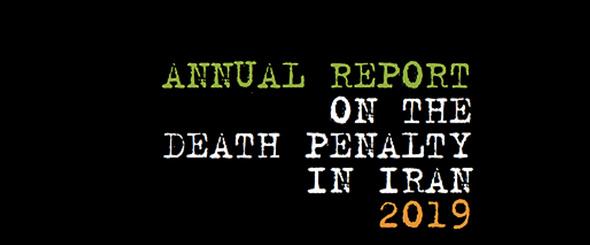
Article(s)
Iran: Annual report on the death penalty 2019
By Iran Human rights and ECMP (Together Against the Death Penalty), on 4 May 2020
Iran Human Rights (IHR) and ECPM (Together Against the Death Penalty) published its 12th report on 31 march 2020. The report provides an assessment and analysis of the death penalty trends in 2019 in the Islamic Republic of Iran.
2020
Iran (Islamic Republic of)
Document(s)
There Is No Evil
By YouTube / Mohammad Rasoulof, on 1 January 2020
2020
Multimedia content
Warning: Undefined variable $liste_type_doc in /home/worldcoa/coalition2020/wp-content/themes/WCADP/template-parts/contents-document.php on line 21
Warning: Undefined variable $liste_pays in /home/worldcoa/coalition2020/wp-content/themes/WCADP/template-parts/contents-document.php on line 40
Iran (Islamic Republic of)
Warning: Undefined variable $tag_langue in /home/worldcoa/coalition2020/wp-content/themes/WCADP/template-parts/contents-document.php on line 54
Warning: Undefined variable $lien_langue in /home/worldcoa/coalition2020/wp-content/themes/WCADP/template-parts/contents-document.php on line 55
fr
More details See the document
There Is No Evil (Persian: شیطان وجود ندارد, lit. ‘Satan doesn’t exist’) is a 2020 Iranian drama film directed by Mohammad Rasoulof. It won the Golden Bear for Best Film at the 70th Berlin International Film Festival. The film relates four stories concerning the death penalty in Iran. Rasoulof explained that the film is about “people taking responsibility” for their actions, and that each story “is based on my own experience.”
- Document type Multimedia content
- Countries list Iran (Islamic Republic of)
Warning: Undefined variable $liste_themes in /home/worldcoa/coalition2020/wp-content/themes/WCADP/template-parts/contents-document.php on line 114
Warning: Undefined variable $liste_themes in /home/worldcoa/coalition2020/wp-content/themes/WCADP/template-parts/contents-document.php on line 121
- Themes list Public debate,
- Available languages Le Diable n'existe pas
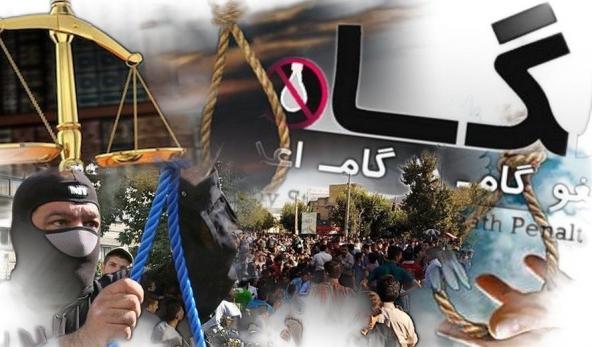
Article(s)
Ways to Restrict the Use of the Death Penalty in Iran
By Iran Human Rights, on 8 April 2019
Iran Human Rights (IHR); March 27, 2019: A part of the 11th Annual Report on the Death Penalty in Iran, by IHR, deals with the ways to restrict the use of the death penalty in Iran.
2019
Iran (Islamic Republic of)
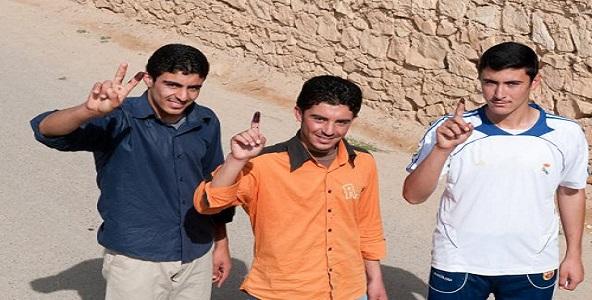
Article(s)
Mass convictions and executions fuel terrorism in Iraq
By Clémentine Etienne, on 27 June 2018
Mass executions in Iraq since 2017 seem to hide behind the scourge of terrorism, the major argument given by the current government. Will May 2018 elections defeat this government policy and the misuse of the country’s anti-terrorism law to sentence to death?
2018
Iran (Islamic Republic of)
Public Opinion
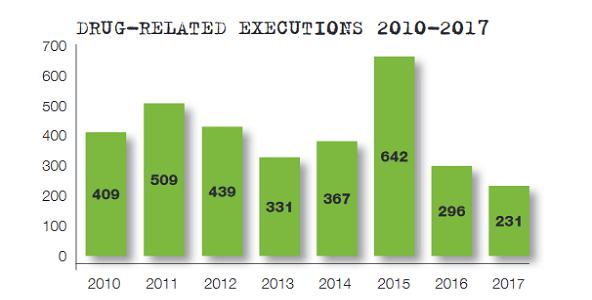
Article(s)
Iran Execution Trends Six Months After the New Anti-Narcotics Law
By Iran Human Rights (IHR), on 29 May 2018
On Monday, May 10, 2018, Iran Human Rights (IHR) reported the execution of Kiomars Nasouhi, a prisoner sentenced to death for drug offenses. This execution is the first drug-related execution registered by IHR since the latest amendment to the Anti-Narcotics Law was enforced on November 14, 2017.
2018
Iran (Islamic Republic of)
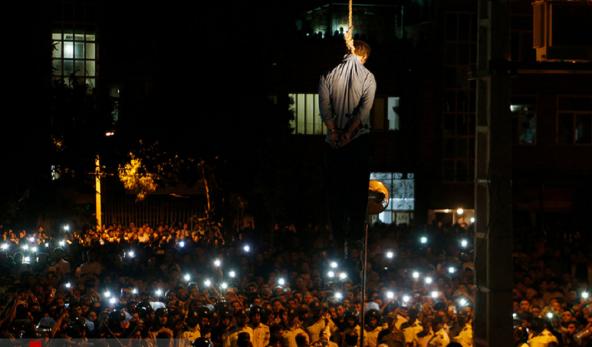
Article(s)
Annual report on the death penalty in Iran 2017
By Iran Human Rights (IHR) - Together Against the Death Penalty (ECPM), on 22 March 2018
The report shows that in 2017 at least 517 people were executed in the Islamic Republic of Iran. This number is comparable with the execution figures in 2016 and confirms the relative reduction in the use of the death penalty compared to the period between 2010 and 2015.
2018
Drug Offenses
Fair Trial
Iran (Islamic Republic of)
Public Opinion
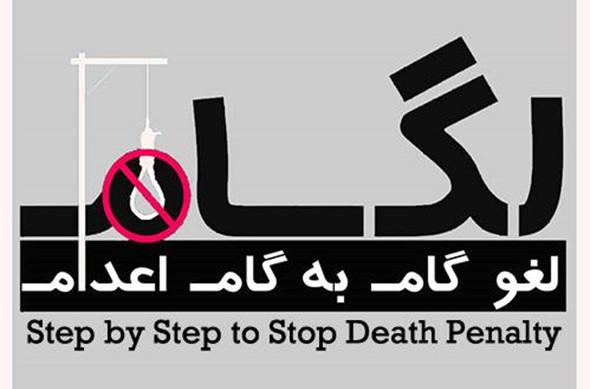
Article(s)
Iran’s brave human rights defenders and their struggle against the death penalty
By Amnesty International, on 5 March 2018
As the world moves away from the death penalty, Iran continues to execute hundreds of people every year and comes second only to China in the number of executions carried out annually. Amnesty International recorded nearly 1,000 executions in Iran in 2015 and at least 567 in 2016.
2018
Iran (Islamic Republic of)
Document(s)
Joint Letter Calling on the HRC to Renew the Mandate of the Special Rapporteur on Human Rights in Iran
By Human Rights Watch / Impact Iran , on 1 January 2018
2018
Multimedia content
Warning: Undefined variable $liste_type_doc in /home/worldcoa/coalition2020/wp-content/themes/WCADP/template-parts/contents-document.php on line 21
Warning: Undefined variable $liste_pays in /home/worldcoa/coalition2020/wp-content/themes/WCADP/template-parts/contents-document.php on line 40
Iran (Islamic Republic of)
Warning: Undefined variable $tag_langue in /home/worldcoa/coalition2020/wp-content/themes/WCADP/template-parts/contents-document.php on line 85
More details See the document
In this joint letter many Iranian and international human rights organizations, urge the governments they called to support the renewal of the mandate of the Special Rapporteur on human rights in the Islamic Republic of Iran, during the 37th session of the UN Human Rights Council.
- Document type Multimedia content
- Countries list Iran (Islamic Republic of)
Warning: Undefined variable $liste_themes in /home/worldcoa/coalition2020/wp-content/themes/WCADP/template-parts/contents-document.php on line 114
Warning: Undefined variable $liste_themes in /home/worldcoa/coalition2020/wp-content/themes/WCADP/template-parts/contents-document.php on line 121
- Themes list Cruel, Inhuman and Degrading Treatment and Punishment, Discrimination,
Warning: Undefined variable $lien_langue in /home/worldcoa/coalition2020/wp-content/themes/WCADP/template-parts/contents-document.php on line 127
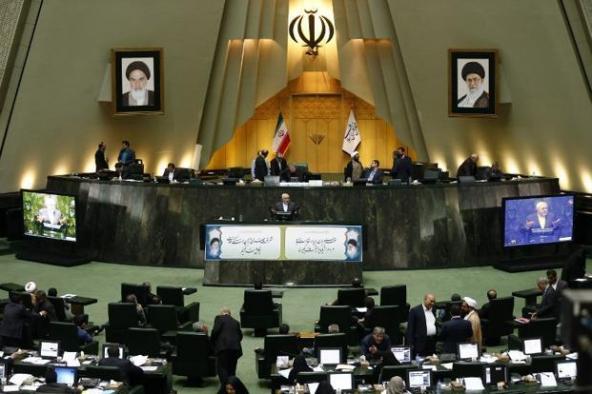
Article(s)
Between hope and disillusion: the Iranian death penalty reform
By Thalia Gerzso, on 13 September 2017
On August 13, 2017, the Iranian parliament finally approved an amendment aiming at raising the bar for a mandatory death sentence in cases involving drug related offenses. Despite this first step, abolitionists deplore the limited effect of this new legislation.
2017
Cruel, Inhuman and Degrading Treatment and Punishment
Iran (Islamic Republic of)
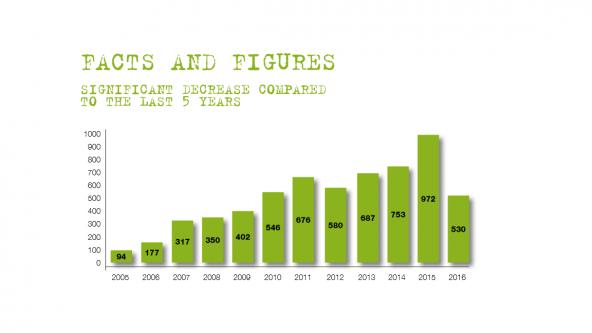
Article(s)
Iran: 2016 a deadly year despite a slight decrease in the executions
By Iran Human Rights, on 6 April 2017
The 9th annual report by Iran Human Rights (IHR)and ECPM (Ensemble contre la peine de mort) on the death penalty in Iran shows that in 2016 at least 530 people were executed in the Islamic Republic of Iran. Although this number is significantly lower than the annual execution numbers from the past five years, Iran remained the country with the highest number of executions per capita.
2017
Iran (Islamic Republic of)
Document(s)
Note verbale dated 7 September 2017 from the Permanent Mission of Egypt to the United Nations addressed to the Secretary-General
By United Nations, on 1 January 2017
2017
United Nations report
Warning: Undefined variable $liste_type_doc in /home/worldcoa/coalition2020/wp-content/themes/WCADP/template-parts/contents-document.php on line 21
Warning: Undefined variable $liste_pays in /home/worldcoa/coalition2020/wp-content/themes/WCADP/template-parts/contents-document.php on line 40
Antigua and Barbuda
Bangladesh
Barbados
Botswana
Brunei Darussalam
Chad
China
Democratic People's Republic of Korea
Egypt
Ethiopia
Grenada
Iran (Islamic Republic of)
Iraq
Jamaica
Kuwait
Libya
Malaysia
Maldives
Warning: Undefined variable $liste_themes in /home/worldcoa/coalition2020/wp-content/themes/WCADP/template-parts/contents-document.php on line 35
Moratorium
Nigeria
Oman
Pakistan
Papua New Guinea
Saint Kitts and Nevis
Saint Lucia
Saint Vincent and the Grenadines
Saudi Arabia
Singapore
Sudan
Syrian Arab Republic
United Arab Emirates
Yemen
Zimbabwe
Warning: Undefined variable $tag_langue in /home/worldcoa/coalition2020/wp-content/themes/WCADP/template-parts/contents-document.php on line 54
Warning: Undefined variable $lien_langue in /home/worldcoa/coalition2020/wp-content/themes/WCADP/template-parts/contents-document.php on line 55
aresfrruzh-hant
More details See the document
The Permanent Missions to the United Nations in New York listed below have the honour to refer to General Assembly resolution 71/187, entitled “Moratorium on the use of the death penalty”, which was adopted by the Third Committee on 17November 2016 and subsequently by the Assembly on 19 December 2016 by a recorded vote. The Permanent Missions wish to place on record that they are in persistent objection to any attemptto impose a moratorium on the use of the death penalty or its abolition in contravention of existing stipulations under international law, for the following reasons:
- Document type United Nations report
- Countries list Antigua and Barbuda / Bangladesh / Barbados / Botswana / Brunei Darussalam / Chad / China / Democratic People's Republic of Korea / Egypt / Ethiopia / Grenada / Iran (Islamic Republic of) / Iraq / Jamaica / Kuwait / Libya / Malaysia / Maldives / Nigeria / Oman / Pakistan / Papua New Guinea / Saint Kitts and Nevis / Saint Lucia / Saint Vincent and the Grenadines / Saudi Arabia / Singapore / Sudan / Syrian Arab Republic / United Arab Emirates / Yemen / Zimbabwe
- Themes list Moratorium
- Available languages مذكرة شفوية مؤرخة 7 أيلول/سبتمبر 2017 موجهة إلى الأمين العام من البعثة الدائمة لمصر لدى الأمم المتحدةNota verbal de fecha 7 de septiembre de 2017 dirigida al Secretario General por la Misión Permanente de Egipto ante las Naciones Unidas.Note verbale datée du 7 septembre 2017, adressée au Secrétaire général par la Mission permanente de l’Égypte auprès de l’Organisation des Nations UniesВербальная нота Постоянного представительства Египта при Организации Объединенных Наций от 7 сентября 2017 года на имя Генерального секретаря2017 年 9 月 7 日埃及常驻联合国代表团给秘书长的普通照会
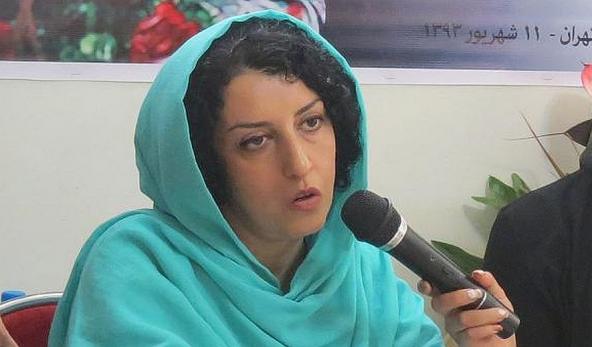
Article(s)
Iran: 16-Year Prison Sentence For Peaceful Human Rights Activism
By Iran Human Rights, on 29 May 2016
An Iranian Court has sentenced the prominent human rights defender Narges Mohammadi to 16 years in prison. She was sentenced to 10 years in prison for her peaceful anti-death penalty activities with the Campaign “LEGAM” (Step by step for abolition of the death penalty). Iran Human Rights (IHR) calls for immediate international reactions. Mahmood Amiry-Moghaddam, the spokesperson of IHR, said: ” Despite President Rouhani’s promises of respecting civil rights, Iranian authorities’ tolerance for peaceful civil activities is record low”.
2016
Iran (Islamic Republic of)
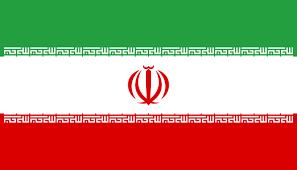
Article(s)
With 969 executions, 2015 turns out to be the deadliest year in Iran since 1990
By Marion Gauer, on 4 April 2016
This 8th annual report (released by Iran Human Rights and Ensemble contre la peine de mort) deals with the number of executions, the trend compared to previous years, the charges, the geographic distribution, as well as the monthly breakdown of the executions in Iran in 2015. These two organizations have been collaborating since 2011, in order to provide annual assessment and analysis of the death penalty trends in Iran. The 2015 report is the result of hard work from IHR members and supporters who took part in the documenting, analyzing and writing of its content.
2016
Iran (Islamic Republic of)
Document(s)
Human Rights Council March 2016 Iran letter
By Impact Iran , on 1 January 2016
2016
Multimedia content
Warning: Undefined variable $liste_type_doc in /home/worldcoa/coalition2020/wp-content/themes/WCADP/template-parts/contents-document.php on line 21
Warning: Undefined variable $liste_pays in /home/worldcoa/coalition2020/wp-content/themes/WCADP/template-parts/contents-document.php on line 40
Iran (Islamic Republic of)
Warning: Undefined variable $tag_langue in /home/worldcoa/coalition2020/wp-content/themes/WCADP/template-parts/contents-document.php on line 85
More details See the document
Some Human Rights and civil society groups wrote to the member states of the Human Rights Council to get them to support the resolution to renew the mandate of the Special Rapporteur on the situation of human rights in the Islamic Republic of Iran at the 31st session of the United Nations Human Rights Council.
- Document type Multimedia content
- Countries list Iran (Islamic Republic of)
Warning: Undefined variable $liste_themes in /home/worldcoa/coalition2020/wp-content/themes/WCADP/template-parts/contents-document.php on line 114
Warning: Undefined variable $liste_themes in /home/worldcoa/coalition2020/wp-content/themes/WCADP/template-parts/contents-document.php on line 121
- Themes list International law, Most Serious Crimes, Country/Regional profiles,
Warning: Undefined variable $lien_langue in /home/worldcoa/coalition2020/wp-content/themes/WCADP/template-parts/contents-document.php on line 127
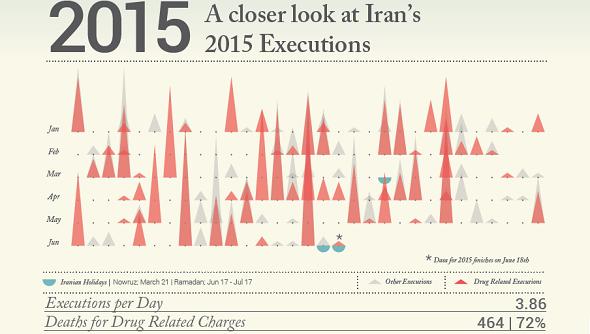
Article(s)
Iran: more than 800 people executed in 2015, 500 for drugs
By Iran Human Rights, on 13 October 2015
Ahead of the 13th World Day Against the Death Penalty, Iran Human Rights is raising awareness about the implementation of the death penalty in Iran for drug-related offenses. Reports from the IHR website indicate that Iranian authorities have carried out more executions in 2015 than any other year in the past 25 years.
2015
Drug Offenses
Iran (Islamic Republic of)
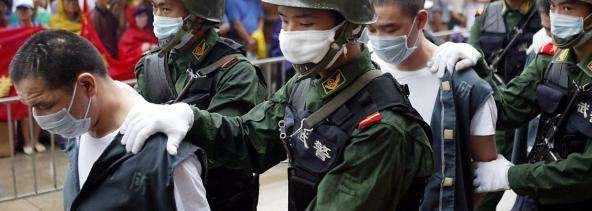
Article(s)
Imposing the death penalty has not reduced drug crimes in Asia -New Report
By FIDH & World Coalition, on 10 October 2015
Death penalty for drug crimes in Asia: an illegal practice reveals report published on World Day by FIDH and the World Coalition
2015
Afghanistan
Bangladesh
China
Democratic People's Republic of Korea
Drug Offenses
India
Indonesia
Iran (Islamic Republic of)
Japan
Lao People's Democratic Republic
Malaysia
Maldives
Myanmar
Pakistan
Republic of Korea
Singapore
Sri Lanka
Taiwan
Thailand
Viet Nam
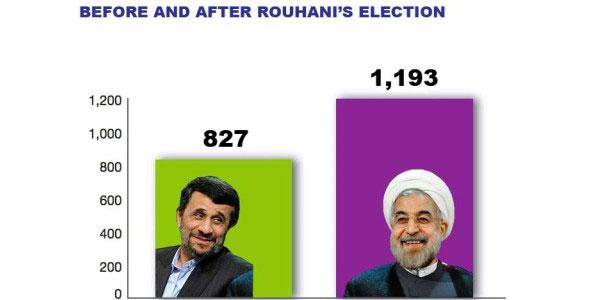
Article(s)
At least 1,193 executions since Hassan Rouhani’s election as president in Iran
on 13 March 2015
The annual report on the death penalty in 2014 shows that the Iranian authorities have executed more than 1193 people since the election of President Rouhani in June 2013. This is an average of more than two executions every day.
2015
Iran (Islamic Republic of)
Document(s)
Voices and video from death row- Ghezelhesar mass-executions
By Iran Human Rights (IHR), on 1 January 2015
2015
Multimedia content
Warning: Undefined variable $liste_type_doc in /home/worldcoa/coalition2020/wp-content/themes/WCADP/template-parts/contents-document.php on line 21
Warning: Undefined variable $liste_pays in /home/worldcoa/coalition2020/wp-content/themes/WCADP/template-parts/contents-document.php on line 40
Iran (Islamic Republic of)
Warning: Undefined variable $tag_langue in /home/worldcoa/coalition2020/wp-content/themes/WCADP/template-parts/contents-document.php on line 85
More details See the document
This video was made by IHR after the start of the executions of 77 prisoners in Ghezehesar prison. Two of the prisoners speak about the interrogations, torture, – You also see the last farewell of a prisoner before the execution.
- Document type Multimedia content
- Countries list Iran (Islamic Republic of)
Warning: Undefined variable $liste_themes in /home/worldcoa/coalition2020/wp-content/themes/WCADP/template-parts/contents-document.php on line 114
Warning: Undefined variable $liste_themes in /home/worldcoa/coalition2020/wp-content/themes/WCADP/template-parts/contents-document.php on line 121
- Themes list Cruel, Inhuman and Degrading Treatment and Punishment, Torture, Death Row Conditions,
Warning: Undefined variable $lien_langue in /home/worldcoa/coalition2020/wp-content/themes/WCADP/template-parts/contents-document.php on line 127
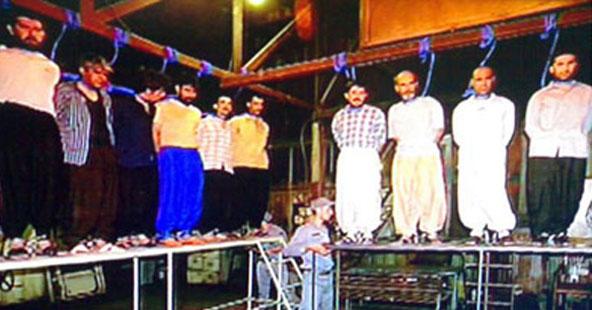
Article(s)
UN: freeze funding of Iran counter-narcotics efforts
By World Coalition Against the Death Penalty, on 17 December 2014
The World Coalition and its members call on UNODC to stop support to Iran as executions for drug trafficking surge.
2014
Drug Offenses
Iran (Islamic Republic of)

Article(s)
Iranian death sentence for Facebook postings violates international law
By World Coalition Against the Death Penalty, on 28 November 2014
Statement of the World Coalition Against the Death Penalty on Soheil Arabi’s Death Sentence in Iran: Exercising freedom of expression is not a crime.
2014
Iran (Islamic Republic of)
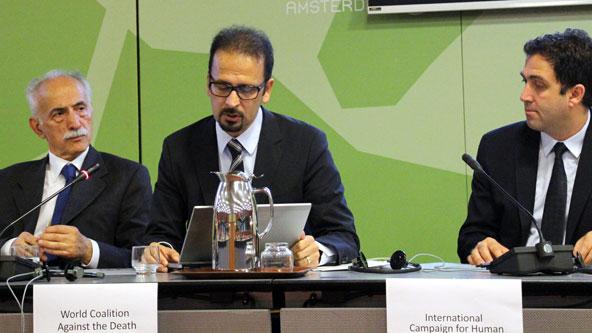
Article(s)
NGOs join forces to tackle capital punishment at Iran’s rights review
By Thomas Hubert, on 30 October 2014
Several World Coalition members are among organisations co-ordinating their efforts to help the international community put pressure on Iran over its use of the death penalty.
2014
Iran (Islamic Republic of)

Article(s)
French youth event emboldens next abolitionist generation
By Bronwyn Dudley, on 22 October 2014
The testimony of an exonerated death row prisoners helped international students overcome initial awkwardness and launch into passionate debates at the invitation of Paris-based organisations on World Day Against the Death Penalty.
2014
France
Iran (Islamic Republic of)
Morocco
United States
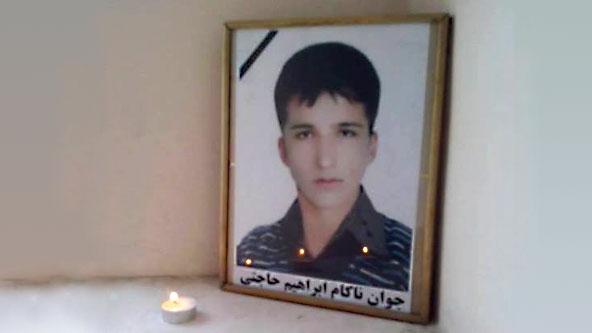
Article(s)
Iran executes four juvenile offenders in one week
By World Coalition Against the Death Penalty, on 28 April 2014
The increased number of prisoners executed for offences committed before they turned 18 is in clear violation of Iran’s international commitments, the World Coalition says in the statement below.
2014
Iran (Islamic Republic of)
Juveniles
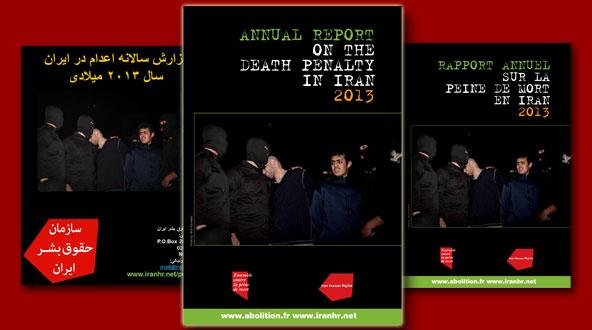
Article(s)
World Coalition members call for increased scrutiny of Iran
By Thomas Hubert, on 31 March 2014
The UN has renewed the mandate of its special rapporteur on Iran as a new IHR/ECPM annual report exposes rising execution numbers since increased engagement between President Rohani and the West.
2014
Iran (Islamic Republic of)
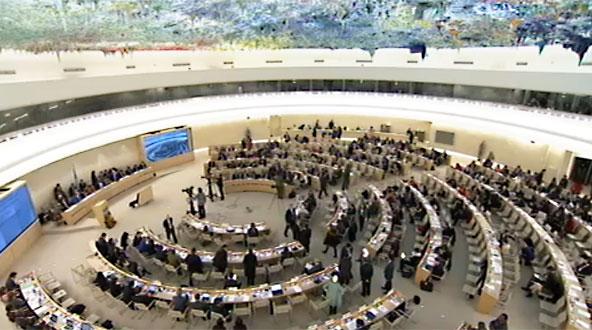
Article(s)
Top UN representatives take stance on death penalty at Human Rights Council
By World Coalition Against the Death Penalty, on 14 March 2014
From UN Secretary General Ban Ki-moon to abolitionist and retentionist government ministers and World Coalition members, participants to a recent discussion on the death penalty placed the issue high on the international agenda.
2014
Afghanistan
Benin
Brazil
Cruel, Inhuman and Degrading Treatment and Punishment
Iran (Islamic Republic of)
Mongolia
Morocco
Myanmar
Namibia
Pakistan
Saudi Arabia
Sierra Leone
Singapore
Sudan
United States
Document(s)
Iran: The use of the death penalty for drug-related offences as a tool of political control
By Taimoor Aliassi / IRAN HUMAN RIGHTS REVIEW, on 1 January 2014
2014
Article
Warning: Undefined variable $liste_type_doc in /home/worldcoa/coalition2020/wp-content/themes/WCADP/template-parts/contents-document.php on line 21
Warning: Undefined variable $liste_pays in /home/worldcoa/coalition2020/wp-content/themes/WCADP/template-parts/contents-document.php on line 40
Iran (Islamic Republic of)
Warning: Undefined variable $tag_langue in /home/worldcoa/coalition2020/wp-content/themes/WCADP/template-parts/contents-document.php on line 79
Warning: Undefined variable $lien_langue in /home/worldcoa/coalition2020/wp-content/themes/WCADP/template-parts/contents-document.php on line 80
fa
More details See the document
The Iranian authorities use the drug issue to enforce their rule and repress ethnic nationalities and members of opposition groups. Whenever it faces escalating crises, internally or externally, new and harsher laws against drugs and addicts are adopted and public hangings of members of ethnic nationalities increase dramatically. The following periods of hangings and drug laws illustrate this policy.
- Document type Article
- Countries list Iran (Islamic Republic of)
Warning: Undefined variable $liste_themes in /home/worldcoa/coalition2020/wp-content/themes/WCADP/template-parts/contents-document.php on line 114
Warning: Undefined variable $liste_themes in /home/worldcoa/coalition2020/wp-content/themes/WCADP/template-parts/contents-document.php on line 121
- Themes list Drug Offences,
- Available languages ایران: استفاده از مجازات اعدام در جرایم مربوط به موادمخدر بعنوان ابزاری برای کنترل سیاسیt
Document(s)
Iran : 20 th Session of the Working Group on the Universal Periodic Review
By Iran Human Rights (IHR) / World Coalition Against the Death Penalty / The Advocates for Human Rights / Abdorrahman Boroumand Foundation for the Promotion of Human Rights and Democracy in Iran / Association for Human Rights in Kurdistan of Iran-Geneva (KMMK-G), on 1 January 2014
Multimedia content
Warning: Undefined variable $liste_type_doc in /home/worldcoa/coalition2020/wp-content/themes/WCADP/template-parts/contents-document.php on line 21
Warning: Undefined variable $liste_pays in /home/worldcoa/coalition2020/wp-content/themes/WCADP/template-parts/contents-document.php on line 40
Iran (Islamic Republic of)
Warning: Undefined variable $tag_langue in /home/worldcoa/coalition2020/wp-content/themes/WCADP/template-parts/contents-document.php on line 85
More details See the document
Thisreport examines the imposition of the death penalty in Iran in light of international human rightsstandards.This report will also examine and discuss the judicial process applied in casesinvolving punishment by the death penalty.
- Document type Multimedia content
- Countries list Iran (Islamic Republic of)
Warning: Undefined variable $liste_themes in /home/worldcoa/coalition2020/wp-content/themes/WCADP/template-parts/contents-document.php on line 114
Warning: Undefined variable $liste_themes in /home/worldcoa/coalition2020/wp-content/themes/WCADP/template-parts/contents-document.php on line 121
- Themes list Due Process , Fair Trial, International law,
Warning: Undefined variable $lien_langue in /home/worldcoa/coalition2020/wp-content/themes/WCADP/template-parts/contents-document.php on line 127

Article(s)
Iran: indiscriminate executions continue
By World Coalition Against the Death Penalty, on 4 November 2013
The United Nations, the European Union and the international community must put the situation of the death penalty at the top of the agenda in their dialogue with Iran.
2013
Cruel, Inhuman and Degrading Treatment and Punishment
Fair Trial
Iran (Islamic Republic of)
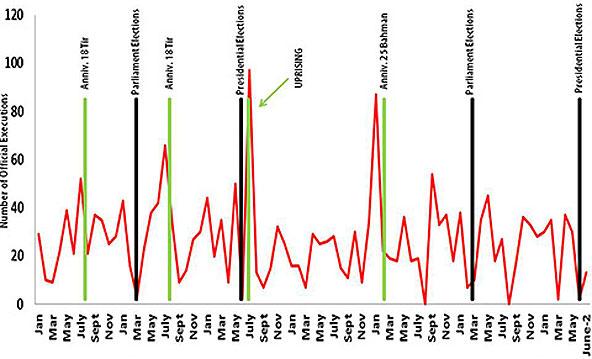
Article(s)
Stats show Iran executions are linked to political events
on 17 July 2013
Figures examined by World Coalition member organisation Iran Human rights show peaks in the use of the death penalty before and after each election.
2013
Drug Offenses
Iran (Islamic Republic of)
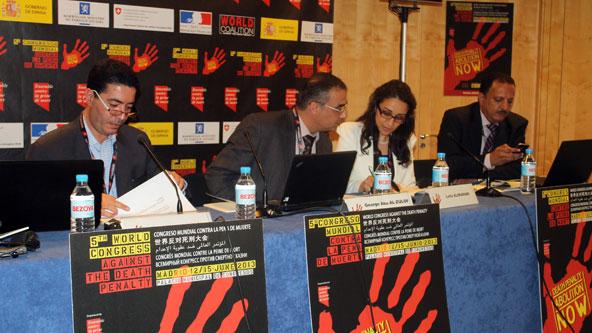
Article(s)
Small progress against the execution of minors
By Tiziana Trotta, on 14 June 2013
These are merely the very first steps down the road, but Iran, Sudan and Yemen, the only countries to apply the death penalty on juvelines along with Saudi Arabia, have just made some small progress on the issue.
2013
Iran (Islamic Republic of)
Juveniles
Sudan
Yemen
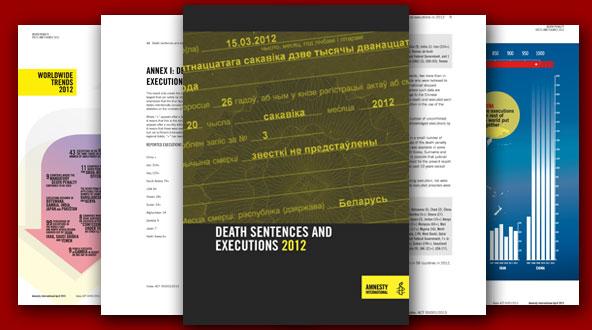
Article(s)
Only one in 10 countries carried out executions in 2012
By Tiziana Trotta, on 10 April 2013
At least 682 people were executed last year aside from China, according to Amnesty International.
2013
Afghanistan
Bahrain
Barbados
Belarus
Burkina Faso
China
Death Row Conditions
Democratic People's Republic of Korea
Egypt
Gambia
Ghana
Guyana
India
Iran (Islamic Republic of)
Iraq
Malawi
Moratorium
Pakistan
Saudi Arabia
Sierra Leone
Singapore
Syrian Arab Republic
Taiwan
Trinidad and Tobago
Viet Nam
Yemen
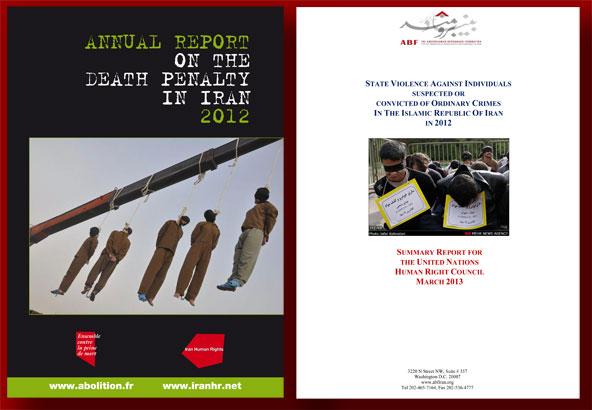
Article(s)
“Iran kills for possession of less than 50g of drugs”
By Thomas Hubert, on 9 April 2013
Annual reports published by two World Coalition member organizations of Iranian exiles expose the disproportionate use of the death penalty in Iran, mostly against drug users and traffickers.
2013
Drug Offenses
Iran (Islamic Republic of)
Document(s)
Summary Report for the United Nations Human Rights Council March 2013
By Abdorrahman Boroumand Foundation for the Promotion of Human Rights and Democracy in Iran, on 1 January 2013
2013
Article
Warning: Undefined variable $liste_type_doc in /home/worldcoa/coalition2020/wp-content/themes/WCADP/template-parts/contents-document.php on line 21
Warning: Undefined variable $liste_pays in /home/worldcoa/coalition2020/wp-content/themes/WCADP/template-parts/contents-document.php on line 40
Iran (Islamic Republic of)
Warning: Undefined variable $tag_langue in /home/worldcoa/coalition2020/wp-content/themes/WCADP/template-parts/contents-document.php on line 85
More details See the document
The report depicts the prisonners convicted of ordinary crimes’s treatment in Iran
- Document type Article
- Countries list Iran (Islamic Republic of)
Warning: Undefined variable $liste_themes in /home/worldcoa/coalition2020/wp-content/themes/WCADP/template-parts/contents-document.php on line 114
Warning: Undefined variable $liste_themes in /home/worldcoa/coalition2020/wp-content/themes/WCADP/template-parts/contents-document.php on line 121
- Themes list Cruel, Inhuman and Degrading Treatment and Punishment, Torture,
Warning: Undefined variable $lien_langue in /home/worldcoa/coalition2020/wp-content/themes/WCADP/template-parts/contents-document.php on line 127
Document(s)
Annual Report: Death Penalty in Iran 2012
By Iran Human Rights (IHR), on 1 January 2013
Article
Warning: Undefined variable $liste_type_doc in /home/worldcoa/coalition2020/wp-content/themes/WCADP/template-parts/contents-document.php on line 21
Warning: Undefined variable $liste_pays in /home/worldcoa/coalition2020/wp-content/themes/WCADP/template-parts/contents-document.php on line 40
Iran (Islamic Republic of)
Warning: Undefined variable $tag_langue in /home/worldcoa/coalition2020/wp-content/themes/WCADP/template-parts/contents-document.php on line 79
Warning: Undefined variable $lien_langue in /home/worldcoa/coalition2020/wp-content/themes/WCADP/template-parts/contents-document.php on line 80
fafrenfafr
More details See the document
The report denounces the judicial use of the death penalty in Iran in 2012
- Document type Article
- Countries list Iran (Islamic Republic of)
Warning: Undefined variable $liste_themes in /home/worldcoa/coalition2020/wp-content/themes/WCADP/template-parts/contents-document.php on line 114
Warning: Undefined variable $liste_themes in /home/worldcoa/coalition2020/wp-content/themes/WCADP/template-parts/contents-document.php on line 121
- Themes list Statistics,
- Available languages گزارش سالانھ مجازات اعدام در ایران سال ۲۱۰۲Rapport Annuel sur la peine de mort en Iran 2012Annual Report: Death Penalty in Iran 2011گزارش سالانه اعدام در ایرا سال ۱۱۲۲Rapport annuel sur la peine de mort en Iran 2011
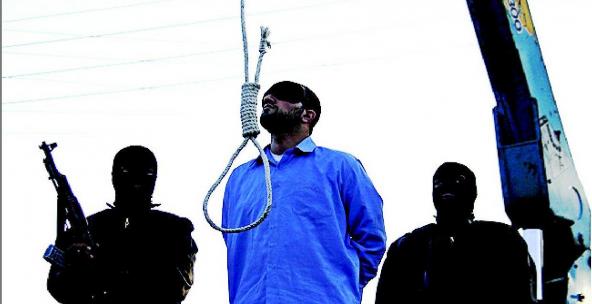
Article(s)
Drug-busting aid to Iran must be frozen
By Thomas Hubert, on 27 November 2012
The World Coalition is calling on international donors to stop helping Iran enforce abusive capital drug laws.
2012
Cruel, Inhuman and Degrading Treatment and Punishment
Drug Offenses
Iran (Islamic Republic of)
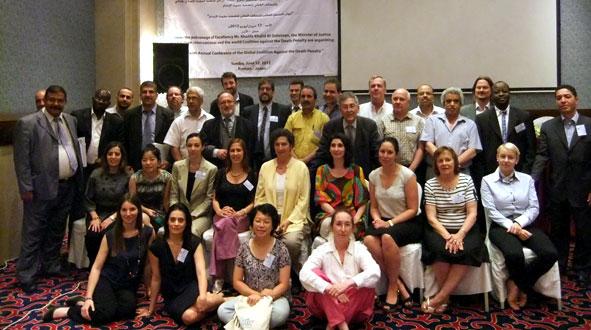
Article(s)
10 years, 132 members, 45 countries
By Florence Bellivier, on 30 June 2012
Penal Reform International welcomed the World Coalition Against the Death Penalty to celebrate its tenth anniversary in Jordan with support from Justice Minister Khalifa Al Sulaiman.
2012
Drug Offenses
Iran (Islamic Republic of)
Iraq
Jordan
Moratorium
Singapore
Taiwan
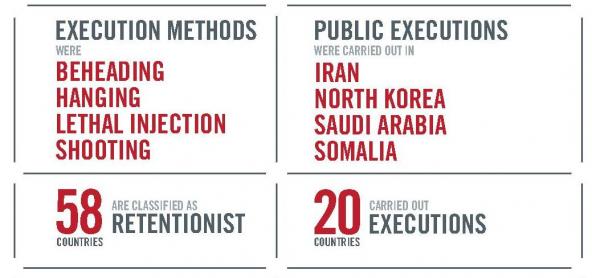
Article(s)
Alarming levels of executions in few countries – Amnesty
on 27 March 2012
In a new report, Amnesty International analyses some of the key developments in the worldwide application of the death penalty, citing figures it has gathered on the number of death sentences handed down and executions carried out in 2011.
2012
Bahrain
Belarus
China
Iran (Islamic Republic of)
Iraq
Moratorium
Nigeria
Saudi Arabia
Sierra Leone
South Sudan
Tunisia

Article(s)
Highest execution numbers in Iran in 10 years
By Mahmood Amiry-Moghaddam, on 13 March 2012
Iran Human Rights has published its annual report on the death penalty in Iran in 2011. IHR’s international spokesperson Mahmood Amiry-Moghaddam says the Iranian authorities are keeping the number of executions high because they use the death penalty as a political tool.
2012
Drug Offenses
Iran (Islamic Republic of)
Juveniles
Women
Document(s)
Go With God
By Frank Harriman / Filmbay Ltd., on 1 January 2012
2012
Multimedia content
Warning: Undefined variable $liste_type_doc in /home/worldcoa/coalition2020/wp-content/themes/WCADP/template-parts/contents-document.php on line 21
Warning: Undefined variable $liste_pays in /home/worldcoa/coalition2020/wp-content/themes/WCADP/template-parts/contents-document.php on line 40
Iran (Islamic Republic of)
Warning: Undefined variable $tag_langue in /home/worldcoa/coalition2020/wp-content/themes/WCADP/template-parts/contents-document.php on line 85
More details See the document
David Taylor has just half an hour to live. He is alone in his cell, in a foreign country, facing execution for something that isn’t even a crime back home in Britain.David has committed the crime of adultery in Iran, a fundamentalist Islamic nation. In the last minutes of his life he tries to come to terms with terrifying finality of his seemingly insignificant actions.Written to be shot in real-time, we follow every second of every minute of the last half hour of David’s life. As he chain smokes his way through to his upcoming oblivion, David is a mess of emotions. From tears and rage to laughter and even calm, he is trying to wrench everything… anything… from his dwindling life.As he interacts with different people, each having a different agenda – the prison governor, the Swedish consul, the guards and his best friend – we see a mirror being held up to reflect the wider world we live in.And finally, it is a simple study of raw human emotion, of friendship and of love.
- Document type Multimedia content
- Countries list Iran (Islamic Republic of)
Warning: Undefined variable $liste_themes in /home/worldcoa/coalition2020/wp-content/themes/WCADP/template-parts/contents-document.php on line 114
Warning: Undefined variable $liste_themes in /home/worldcoa/coalition2020/wp-content/themes/WCADP/template-parts/contents-document.php on line 121
- Themes list Foreign Nationals, Death Penalty,
Warning: Undefined variable $lien_langue in /home/worldcoa/coalition2020/wp-content/themes/WCADP/template-parts/contents-document.php on line 127
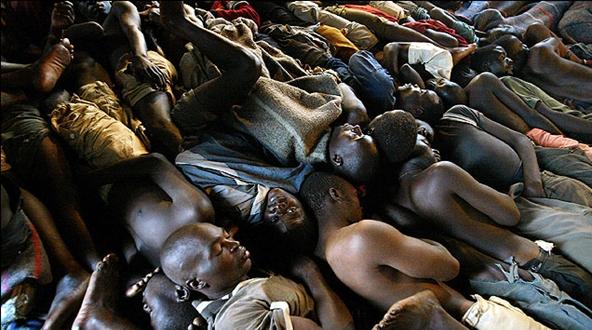
Article(s)
Asia still top executioner but more divided than ever: Hands Off Cain Report
By Aurélie Plaçais, on 11 August 2011
Hands Off Cain’s 2011 Report contains the most important facts regarding the practice of the death penalty in 2010 and the first six months of 2011.
2011
China
Democratic People's Republic of Korea
Drug Offenses
India
Iran (Islamic Republic of)
Mongolia
Moratorium
Myanmar
Viet Nam

Article(s)
Amnesty 2010 stats: retentionist countries increasingly isolated
on 28 March 2011
Countries which continue to use the death penalty are being left increasingly isolated following a decade of progress towards abolition, Amnesty International has said in its new report Death Sentences and Executions in 2010.
2011
China
Drug Offenses
Egypt
Fair Trial
Indonesia
Iran (Islamic Republic of)
Juveniles
Lao People's Democratic Republic
Libya
Malaysia
Moratorium
Pakistan
Sudan
Thailand
United Arab Emirates
United States
Yemen
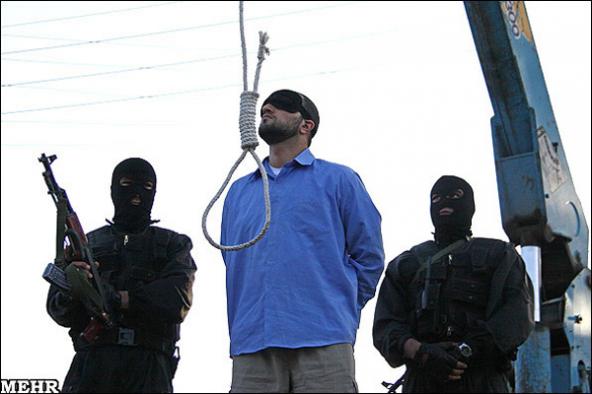
Article(s)
Outrage as Iran’s execution figures explode
on 12 February 2011
Iran hanged 121 people in six weeks between 20 December 2010 and 31 January 2011, many of them after unfair trails and for crimes that did not result in a person’s death.
2011
Drug Offenses
Fair Trial
Iran (Islamic Republic of)
Juveniles
Moratorium
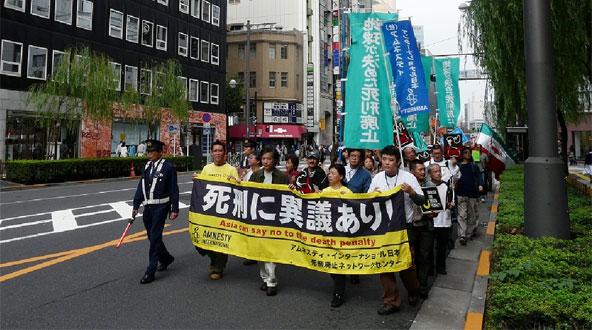
Article(s)
10.10.10 Looking back on the World Day in Asia
on 3 December 2010
The Anti-Death Penalty Asia Network rounds up reports from the main events organised across the Asia-Pacific region for World Day Against the Death Penalty on October 10.
2010
Australia
Bangladesh
India
Indonesia
Iran (Islamic Republic of)
Italy
Japan
Pakistan
Singapore
Terrorism
United States

Article(s)
‘Sakineh’ campaign to culminate in worldwide protests
on 25 August 2010
What started as an effort to save an Iranian woman sentenced to death by stoning is turning into a global movement for human rights and against capital punishment.
2010
Cruel, Inhuman and Degrading Treatment and Punishment
Iran (Islamic Republic of)
Public Opinion
Article(s)
2009 Amnesty statistics: at least 714 executions… excluding China
on 30 March 2010
Amnesty International has released its report on the death penalty in the world in 2009. The organisation has decided to exclude China from its calculation due to the lack of transparency on capital punishment in that country.
2010
Belarus
Burundi
China
Cruel, Inhuman and Degrading Treatment and Punishment
Fair Trial
Iran (Islamic Republic of)
Iraq
Saudi Arabia
Togo
United States
Article(s)
Universal abolition will happen when four key countries change sides
on 28 February 2010
The US, Iran, China and Japan hold a strategic cultural or geographic position, but the road to abolition remains blocked in those countries.
2010
China
Death Row Conditions
Iran (Islamic Republic of)
Japan
Juveniles
Switzerland
United States
Article(s)
Protecting vulnerable groups from the death penalty
on 24 February 2010
Juveniles and the mentally ill face a higher risk of falling victims to the death penalty. Abolitionists and activists defending their rights have teamed up to highlight this situation.
2010
Drug Offenses
Iran (Islamic Republic of)
Juveniles
Mental Illness
Switzerland
Women
Article(s)
Abolitionist co-operation at all levels kick-started in Geneva
on 24 February 2010
The first plenary session of the World Congress Against the Death Penalty focused on “increasing cooperation between States, NGOs and international organizations and developing common strategies for a death penalty-free world”.
China
Iran (Islamic Republic of)
Moratorium
Switzerland
Article(s)
Activists and diplomats slam political executions in Iran
on 1 February 2010
The Islamic Republic finds itself more isolated than ever after it hanged to dissidents and threatened many more with execution.
2010
Cruel, Inhuman and Degrading Treatment and Punishment
Fair Trial
Iran (Islamic Republic of)
Article(s)
FIACAT: abolition “is part of the mission of the Churches”
on 16 December 2009
Days before the major Christian festival of Christmas, the International Federation of Action by Christians for the Abolition of Torture reaffirmed its Gospel-inspired opposition to the death penalty.
2009
Cruel, Inhuman and Degrading Treatment and Punishment
Iran (Islamic Republic of)
Juveniles
Saudi Arabia
Sudan
Yemen
Article(s)
Iran ignores nearly 100,000 signatures against child executions
on 23 November 2009
The World Coalition delegation carrying 90,708 signatures against juvenile executions in the world was not admitted to the embassies of Iran and Saudi Arabia, in contrast to those of Sudan and Yemen.
2009
Iran (Islamic Republic of)
Juveniles
Sudan
Article(s)
Iranian World Coalition member receives Martin Ennals award
on 23 May 2009
A group of prestigious human rights organisations have chosen to honour Emad Baghi, the founder of the Association for the Right to Live.
2009
Iran (Islamic Republic of)
Article(s)
Global outrage at Iranian juvenile execution
on 6 May 2009
Human rights organisations and governments worldwide have slammed the Iranian authorities for the illegal execution of Delara Darabi, a young woman convicted of a murder committed when she was 17.
2009
Innocence
Iran (Islamic Republic of)
Juveniles
Article(s)
Amnesty charts death penalty world map and vows to remove Belarus from it
on 25 March 2009
World Coalition member Amnesty International has released its annual statistics on the death penalty and launched a campaign against capital punishment in Belarus.
2009
Belarus
Belarus
China
Iran (Islamic Republic of)
Pakistan
Saudi Arabia
United States
Article(s)
Iran: Human rights and anti-death penalty activist Emmadeddin Baghi arrested
on 16 October 2007
The World Coalition Against the Death Penalty (WCADP) is greatly concerned with the arrest and imprisonment, on 14 October, of Iranian abolitionist Emmadeddin Baghi.
2007
Iran (Islamic Republic of)
Legal Representation
Article(s)
World Day: the French and Iranians hand-in-hand in Paris
on 12 October 2007
Abolitionists from the two countries set up a gallows in the heart of the French capital similar to that used in Tehran only a few weeks ago.
2007
Fair Trial
France
France
Iran (Islamic Republic of)
Article(s)
The difficult struggle facing Iran’s abolitionists
on 3 September 2007
Iran has taken a dreadful step in the wrong direction in the summer of 2007, through a combination of an increase in executions and the repression of activists opposed to the death penalty.
2007
Iran (Islamic Republic of)
Juveniles
Legal Representation
Public Opinion
Article(s)
Human Rights and the Death Penalty in Iran
on 19 June 2007
A gathering has taken place in Geneva on June 11, 2007 to protest against human rights violations in Iran. On the initiative of Human Rights in Iran, this demonstration was supported by Hands Off Caïn, the International Committee against Torture, Rights & Democracy, and the Canadian Center for the Victims of Torture (CCVT), among others.
2007
Cruel, Inhuman and Degrading Treatment and Punishment
Iran (Islamic Republic of)
Juveniles
Women
Document(s)
Towards an Islamic Critique of Capital Punishment
By Robert Postawko / Journal of Islamic and Near Eastern Law, on 1 January 2002
2002
Article
Warning: Undefined variable $liste_type_doc in /home/worldcoa/coalition2020/wp-content/themes/WCADP/template-parts/contents-document.php on line 21
Warning: Undefined variable $liste_pays in /home/worldcoa/coalition2020/wp-content/themes/WCADP/template-parts/contents-document.php on line 40
Iran (Islamic Republic of)
Warning: Undefined variable $tag_langue in /home/worldcoa/coalition2020/wp-content/themes/WCADP/template-parts/contents-document.php on line 85
More details See the document
In general, Muslim nations recognize the validity of the death penalty, and many frequently impose it. According to Amnesty International, between 1985 and mid-1988, Saudi Arabia executed 140 prisoners for the crimes of murder, robbery with violence, drug smuggling or distribution, and adultery. During the same period, Pakistan executed 115, primarily for the crime of murder. Hundreds every year faced the firing squad in Iraq for murder, desertion, treason, sabotage, and economic corruption. At the same time, the Islamic Republic of Iran executed more than 743 inmates for murder, drug crimes, political offenses, prostitution, adultery and other “moral offenses,” including “being corrupt on earth” and “being at enmity with God.” In face of the widespread acceptance of the death penalty within the Muslim world, this essay explores the contours of an Islamic argument against capital punishment. The argument is not, and cannot be, an appeal for the abolition of the death penalty in all circumstances. It does call into question, however, the legitimacy – indeed, the legality in accordance with the principles of classical Islamic law, or the Shari’ah – of capital punishment as it is practiced in the era of Islamization.
- Document type Article
- Countries list Iran (Islamic Republic of)
Warning: Undefined variable $liste_themes in /home/worldcoa/coalition2020/wp-content/themes/WCADP/template-parts/contents-document.php on line 114
Warning: Undefined variable $liste_themes in /home/worldcoa/coalition2020/wp-content/themes/WCADP/template-parts/contents-document.php on line 121
- Themes list Religion , Capital offences, Most Serious Crimes,
Warning: Undefined variable $lien_langue in /home/worldcoa/coalition2020/wp-content/themes/WCADP/template-parts/contents-document.php on line 127

